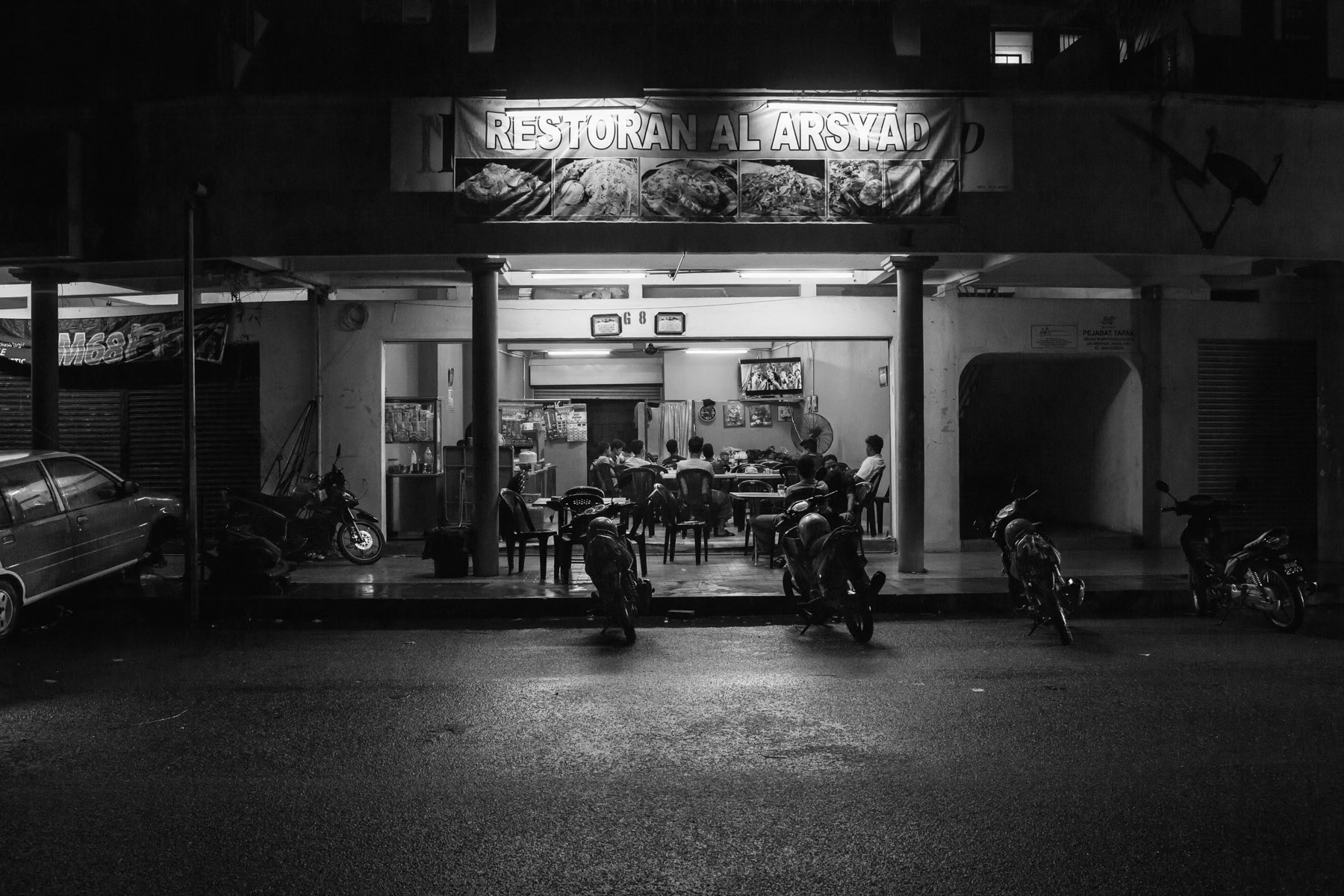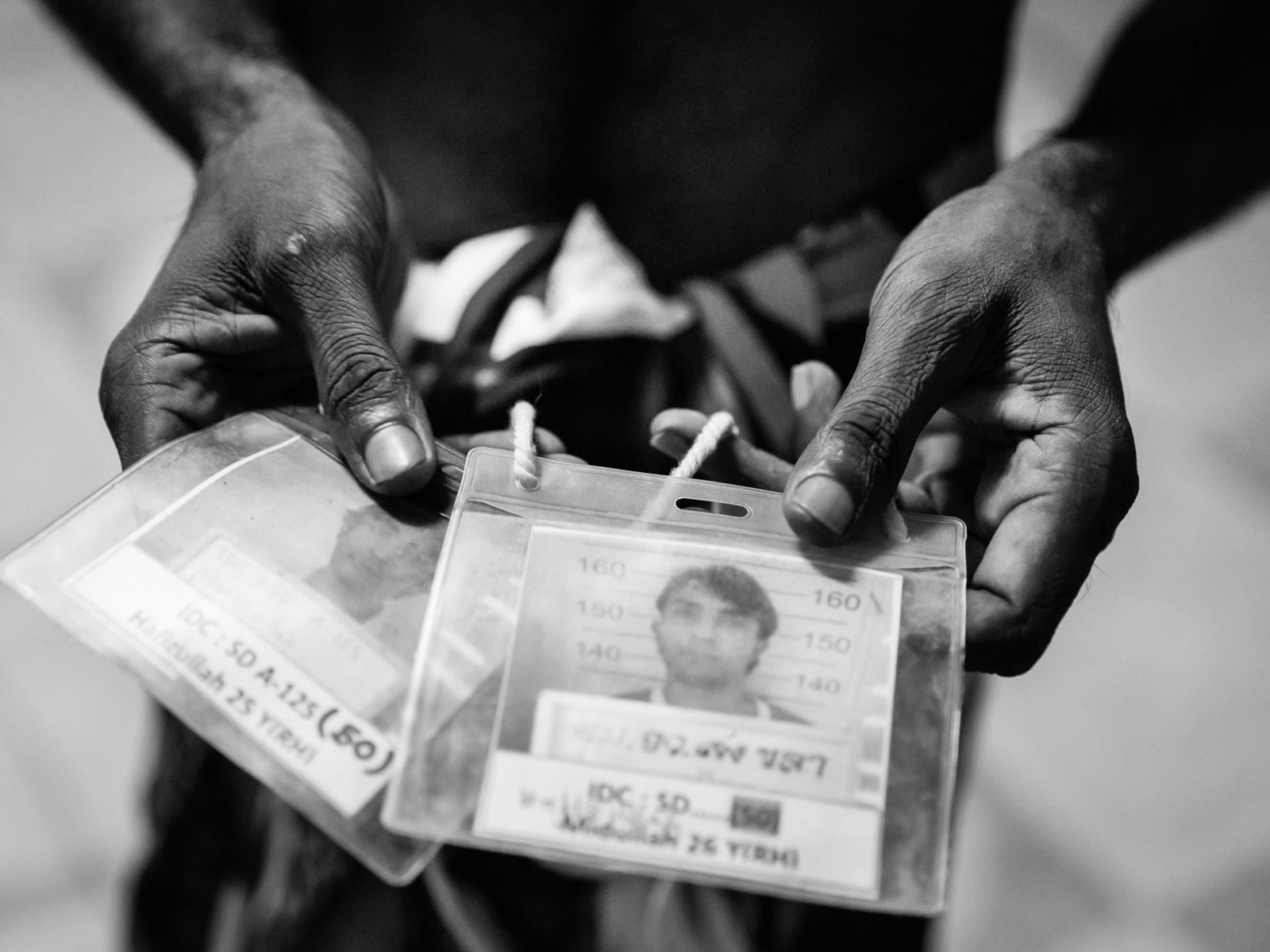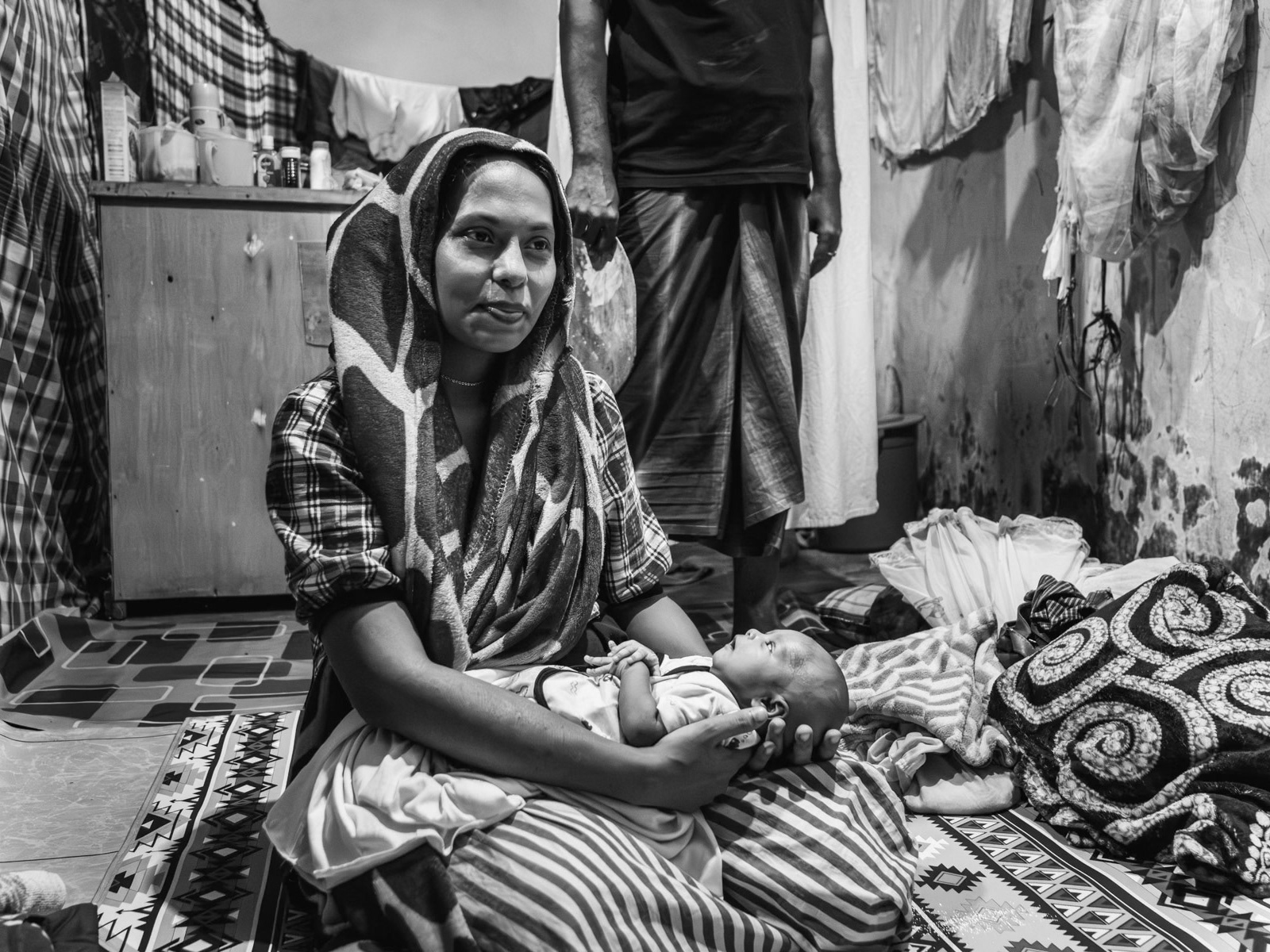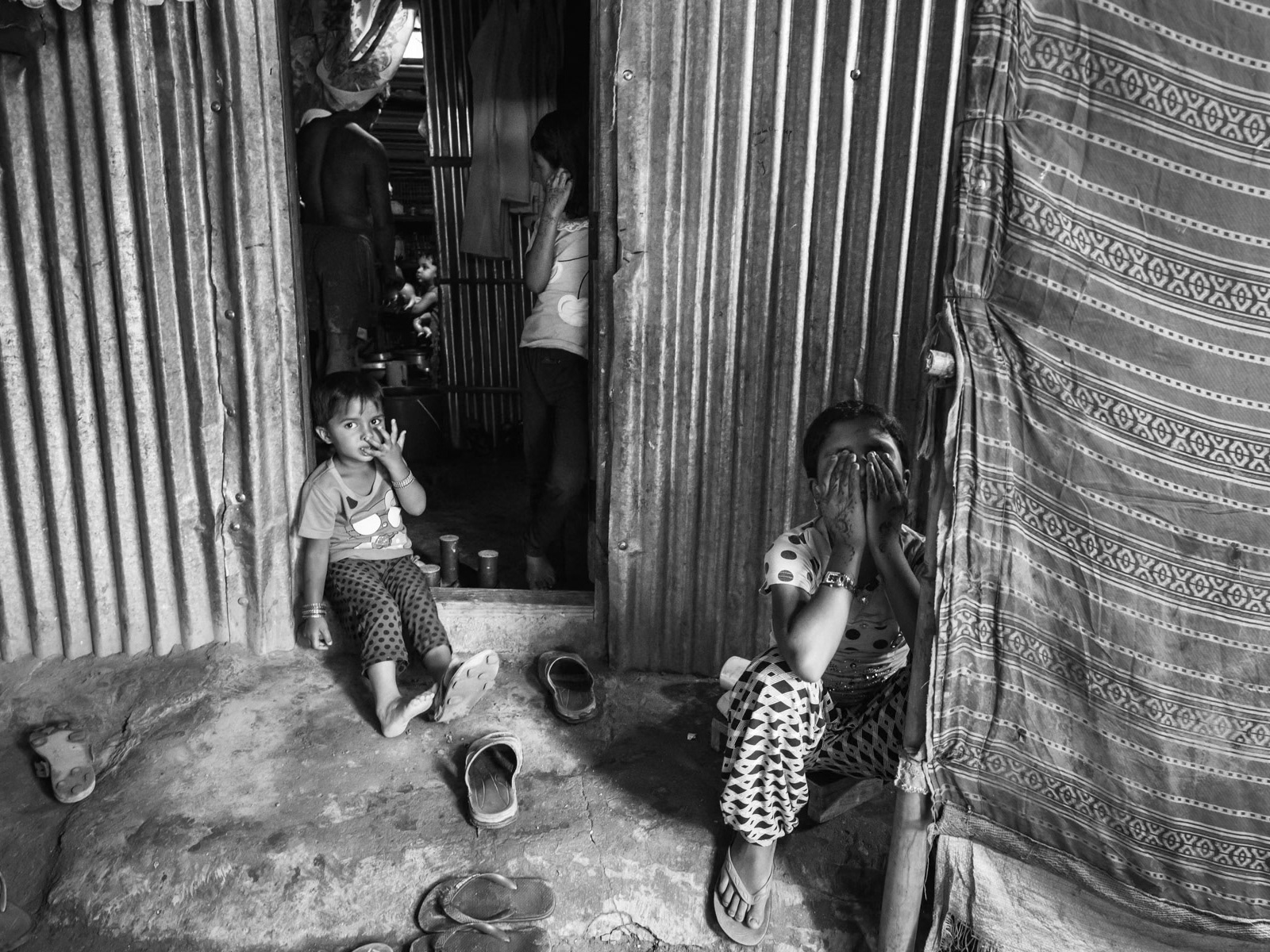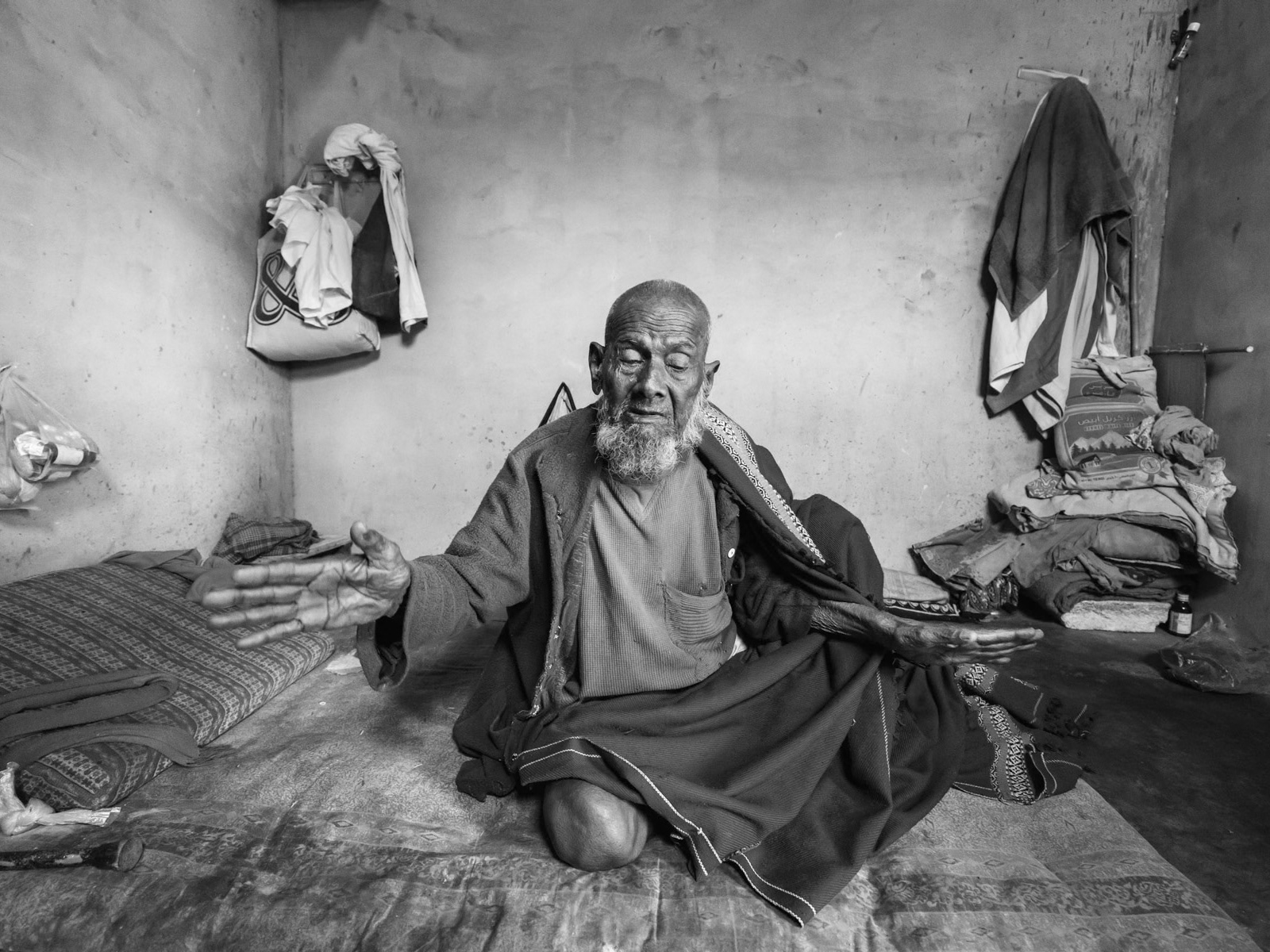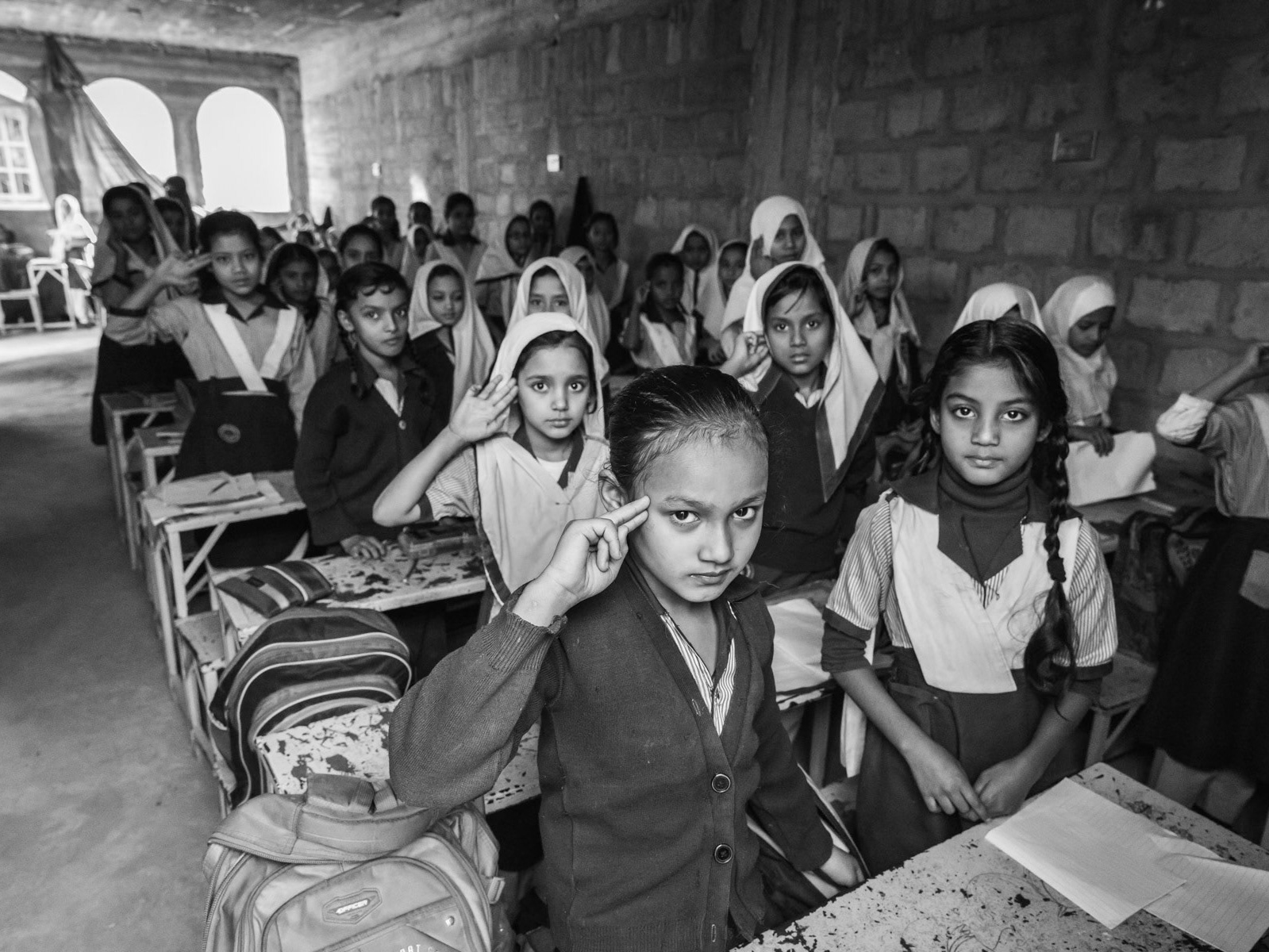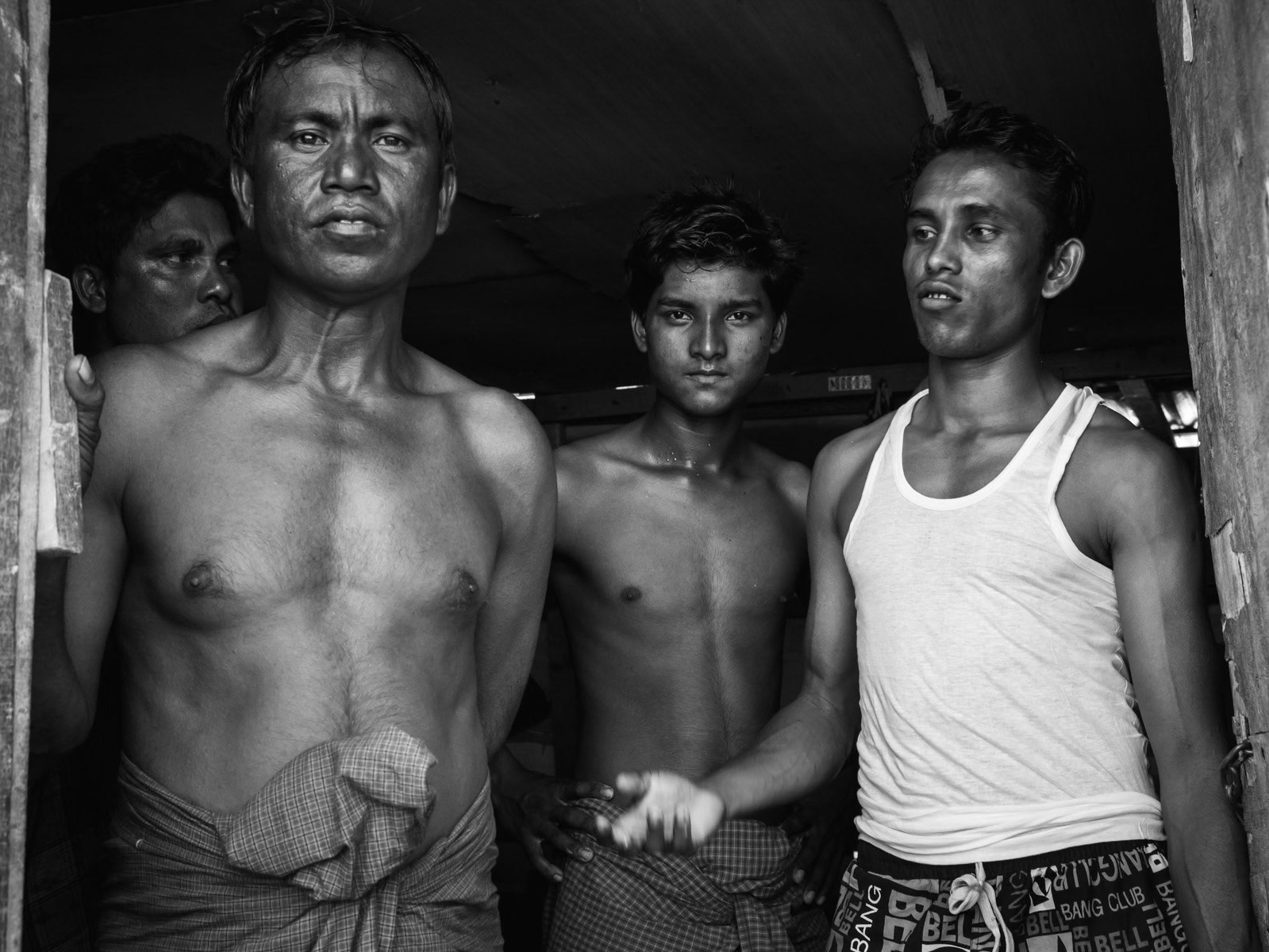For over two decades, Malaysia has been a primary destination for the Rohingya fleeing violent persecution in Myanmar. Today, over 200,000 Rohingya live in Malaysia, drawn by the promise of safety and the chance to rebuild their lives. However, their situation remains precarious, as Malaysia is not a signatory to the 1951 Refugee Convention, leaving the Rohingya without legal status or formal protections. This exposes them to exploitation, arrest, and potential deportation.
A significant number of Rohingya find informal work in Malaysia’s construction sector, where they perform demanding and dangerous tasks for meager wages. Being undocumented, they are often paid less than local workers and have little recourse when employers fail to compensate them adequately. Worse still, some construction companies collude with immigration authorities in orchestrated raids, or razzias, on worksites. These operations result in Rohingya workers being arrested, allowing companies to avoid paying them their dues. Once detained, the undocumented Rohingya face extortionate bribes to secure their release. Those unable to pay risk being deported back to Myanmar, where they would likely face persecution, detention, or worse.
The constant threat of arrest and deportation exacerbates the already dire conditions under which the Rohingya live. Without access to education, healthcare, or legal recourse, their prospects remain bleak. Nonetheless, they persist in sending remittances to family members still suffering in Myanmar or languishing in refugee camps elsewhere. Despite their resilience, the Rohingya in Malaysia live in a state of limbo, caught between a life of exploitation and the ever-present risk of being returned to the violence they fled. Meaningful policy changes and international support are urgently needed to address this humanitarian crisis and provide the Rohingya with dignity and security in their host country.
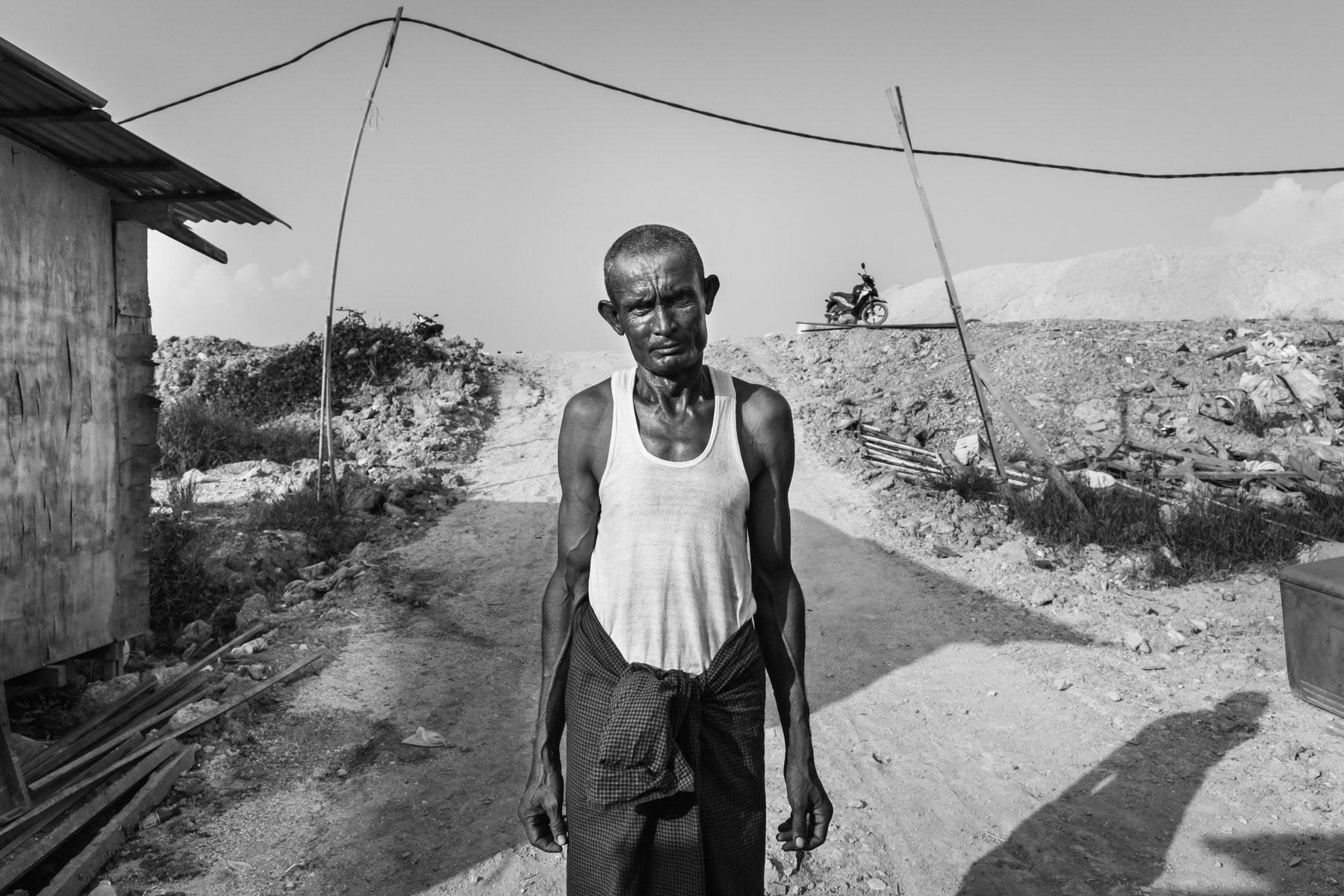
Rohingya construction worker. About 1,200 Rohingya work for the past 3 years on what is the largest concentration of Rohingya workers on any construction site in Malaysia. Most are single men that arrived in Malaysia during the past 4 years through human traffickers, less than 10% are registered with UNHCR exposing them to abuse and no protection. Desa Ku in Kedai, Malaysia, June 2017
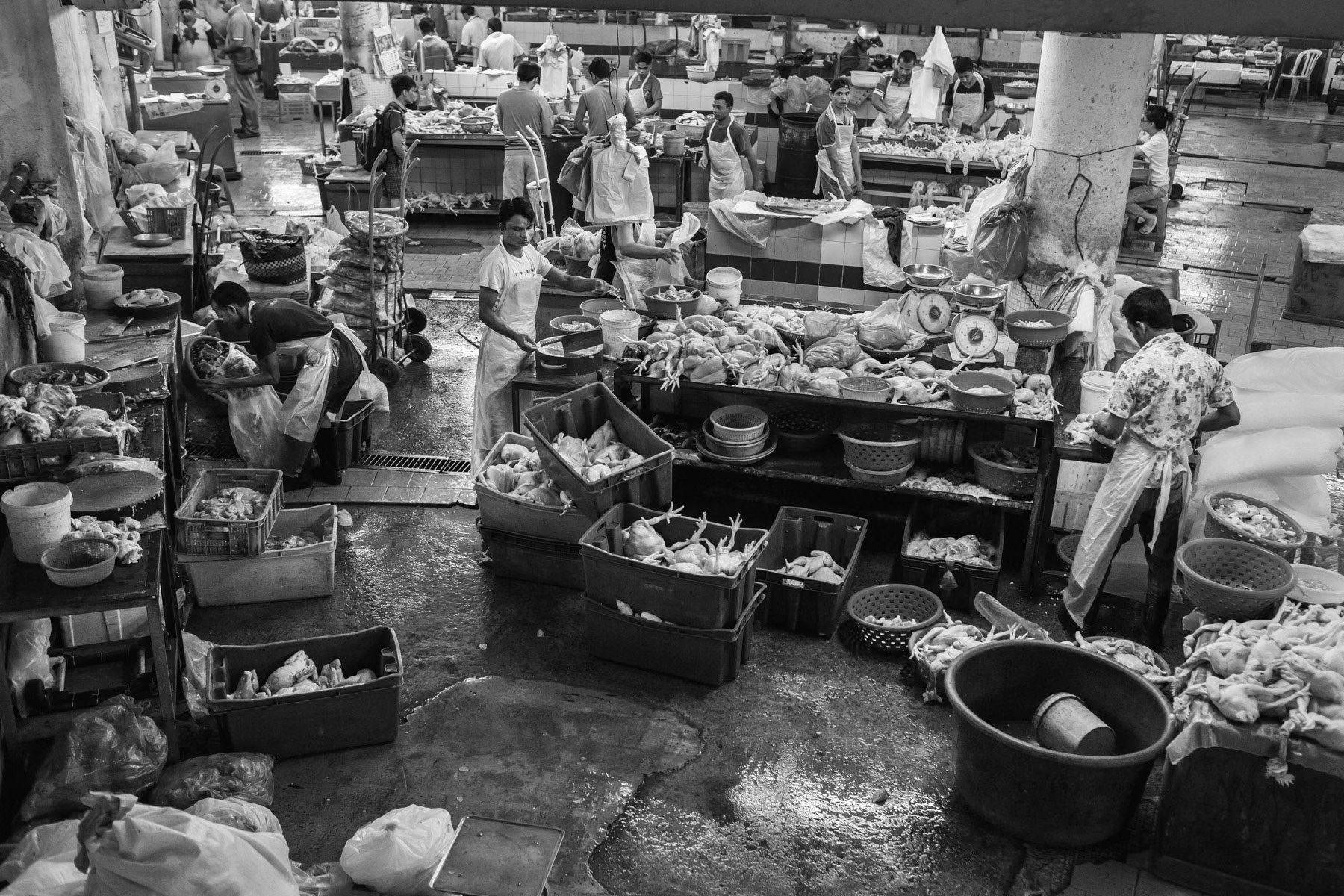
Poultry section of the wholesale market of Klang where Rohingya refugees are employed. Klang, Malaysia, November 2016
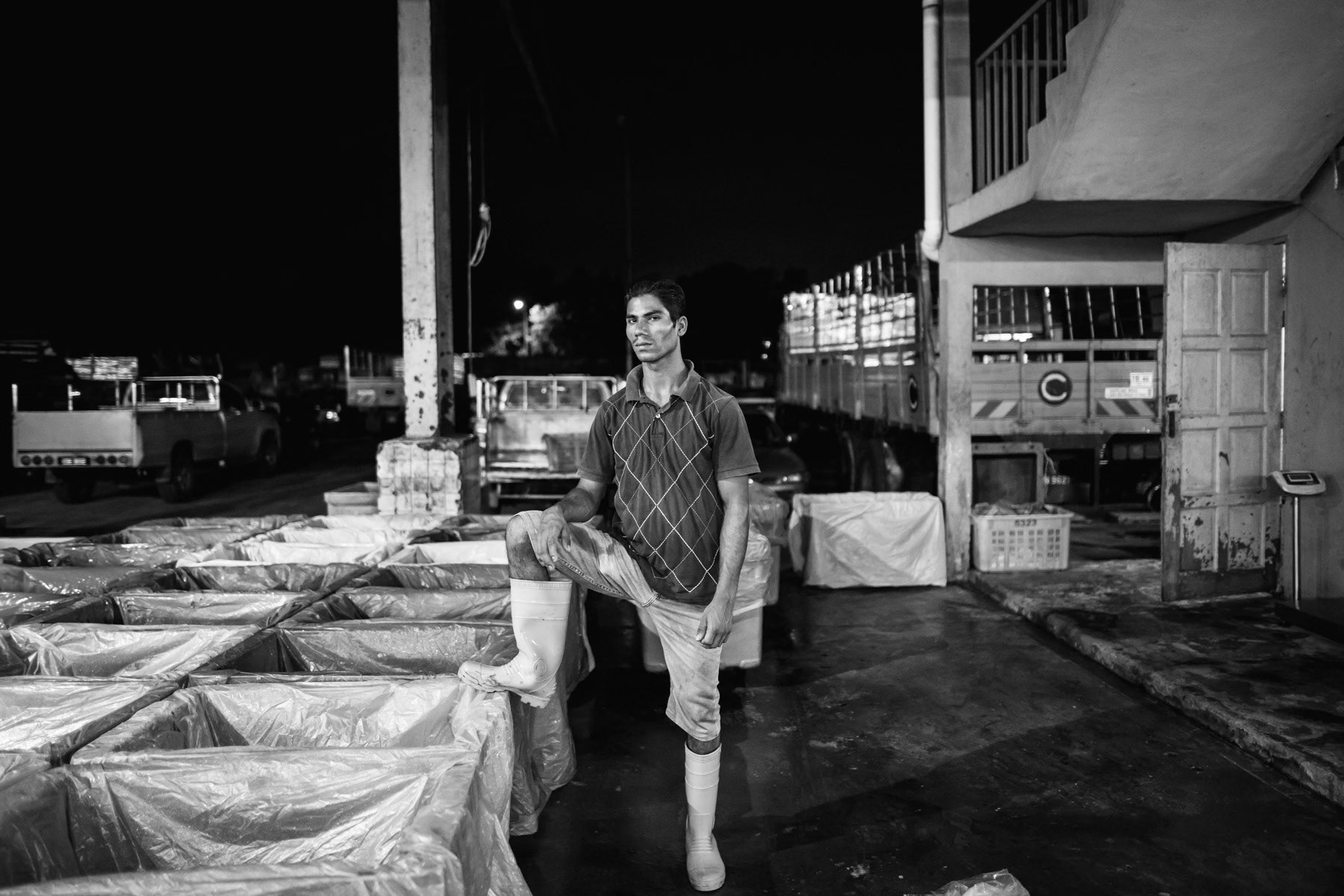
Wholesale market and fishing port where numereous Rohingya refugees work in the early morning hours. Kuantan fishing port, Malaysia, June 2017
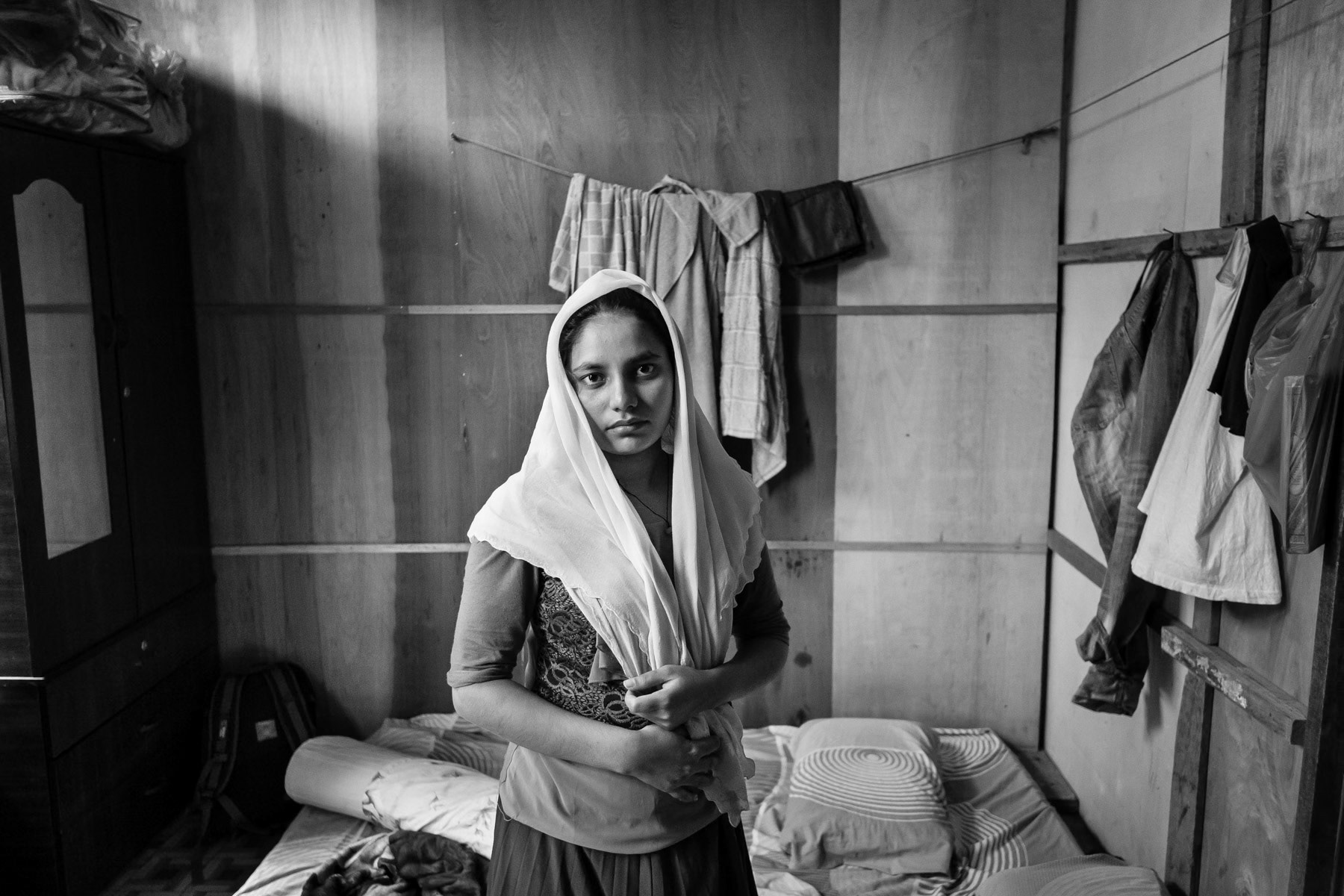
Family room in a building hosting Rohingya refugees working in the nearby wholesale market. Klang, Malaysia, June 2016
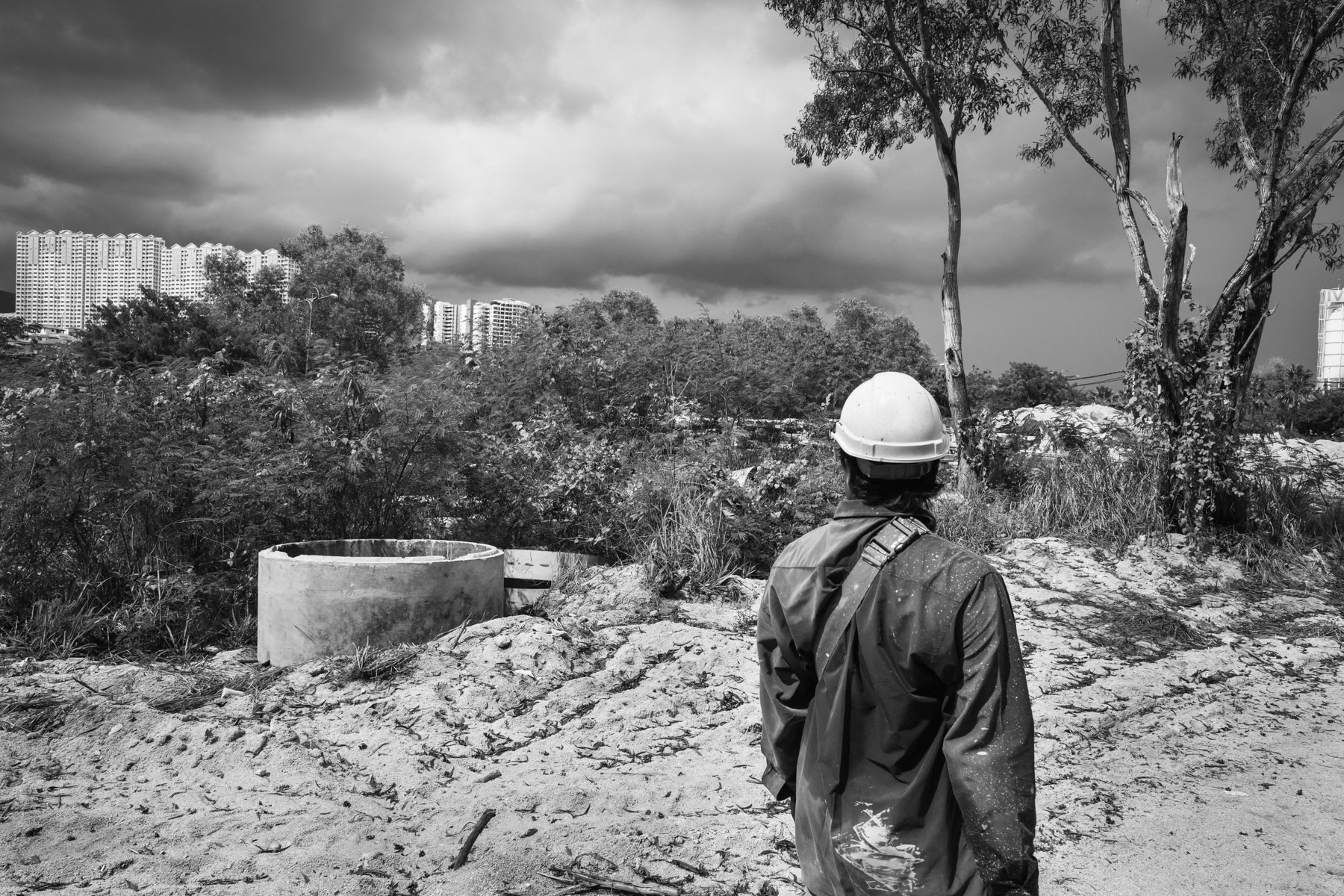
Rohingya refugee employed as a painter on large housing contruction sites in Penang, Malaysia, January 2017
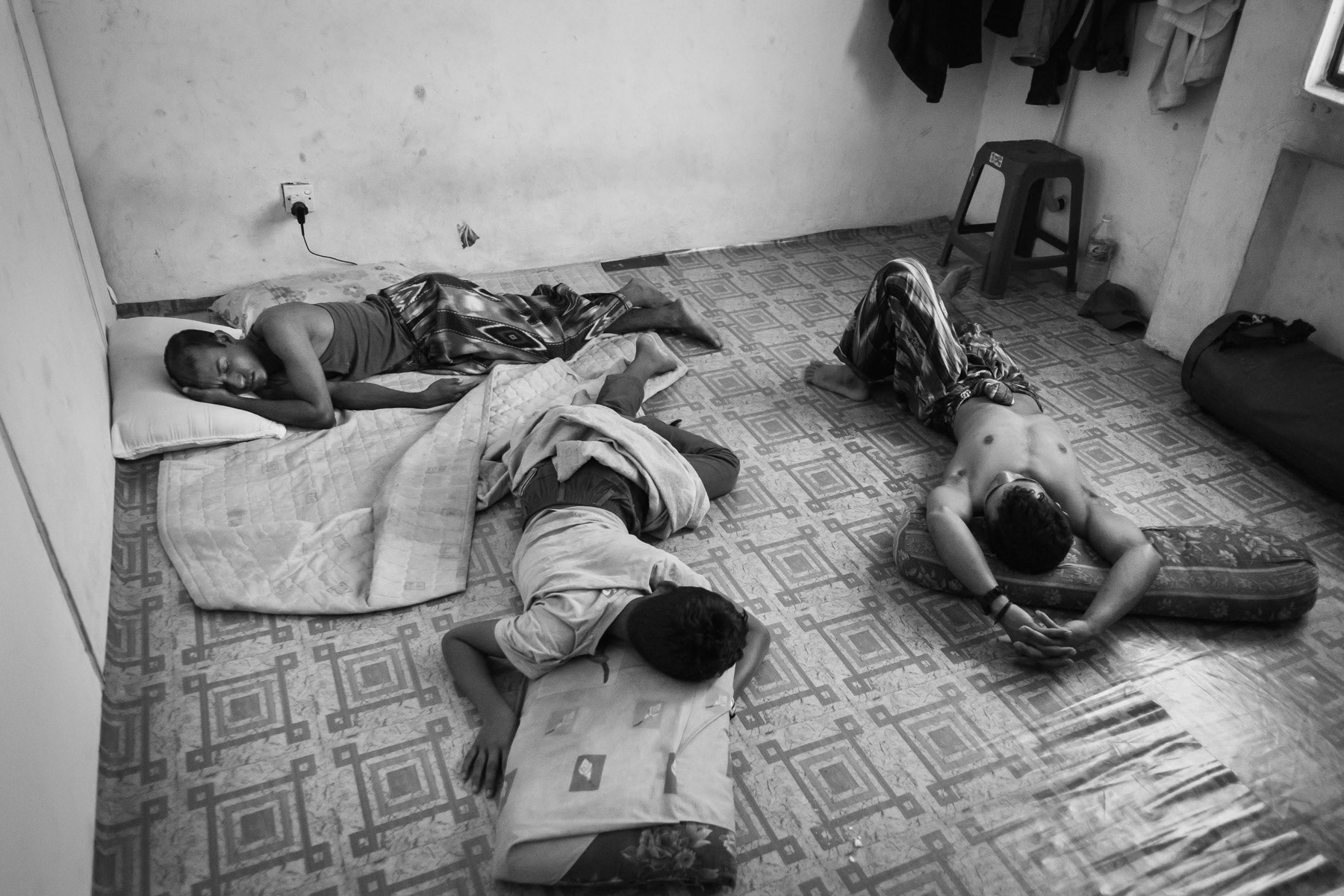
Rohingya refugees from Myanmar working in the nearby wholesale market. Klang Valley , Malaysia, June 2016
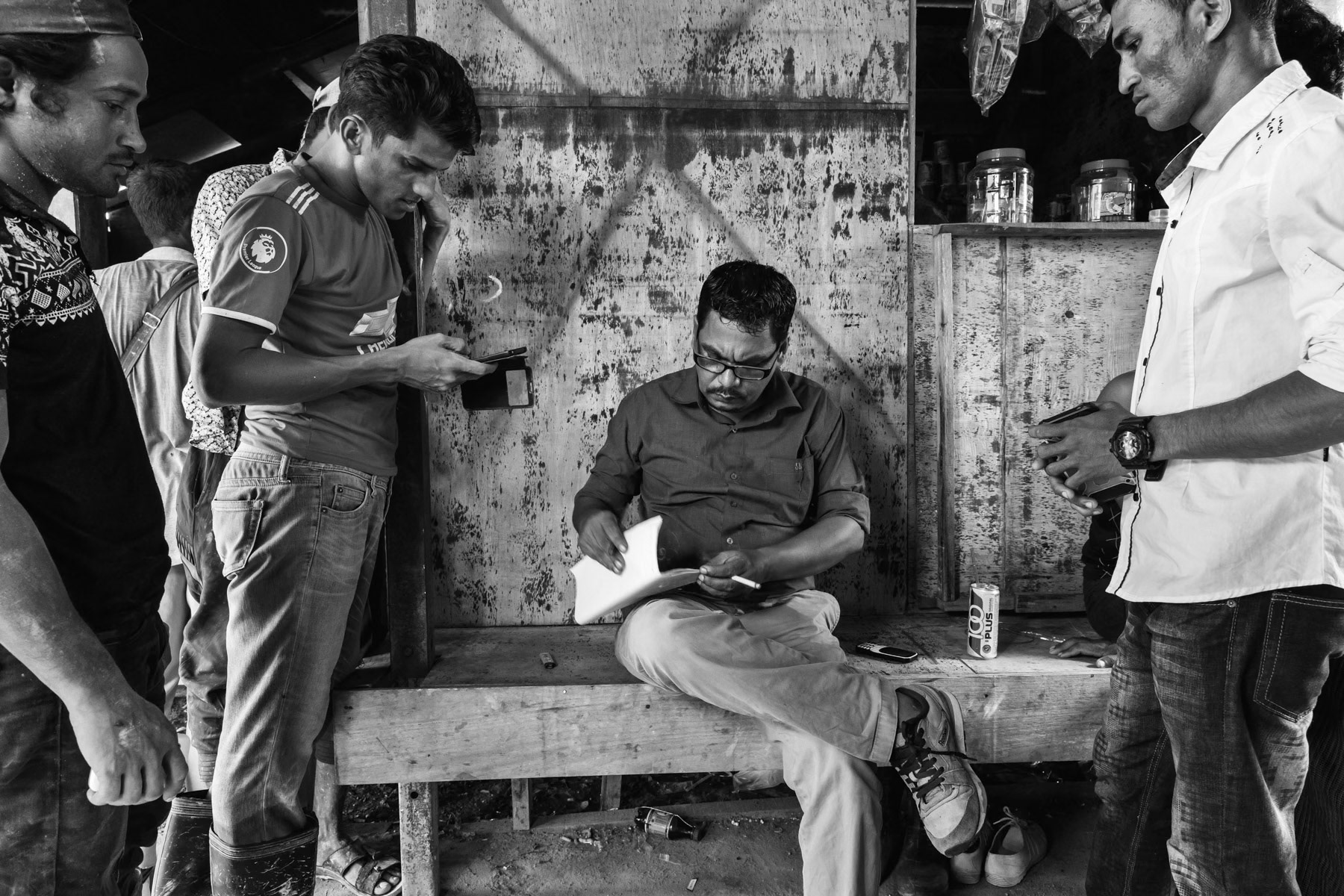
A Rohingya activist collecting basic data of 40 undocumented Rohingya construction workers. Once they receive a UNHCR refugee card they are more protected of abuse and arbitrary arrest by the immigartion police. Lunas in Kedah State, Malaysia, November 2018

A Rohingya refugee communicating with family back home in Myanmar. Klang Valley, Malaysia, June 2016
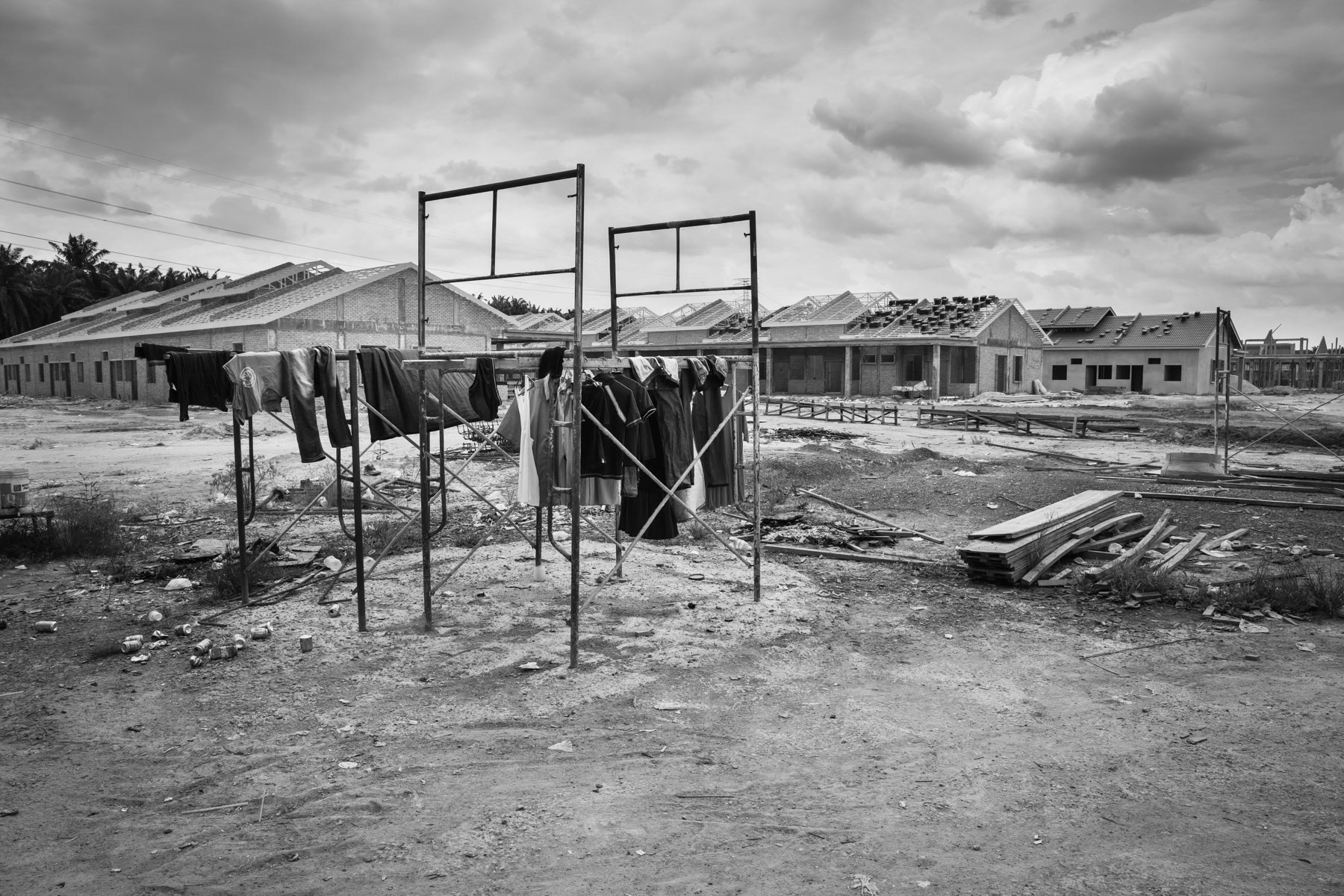
Barracks on an isolated construction site where 40 Rohingya refugees work. Lunas, Kedah, Malaysia, November 2018
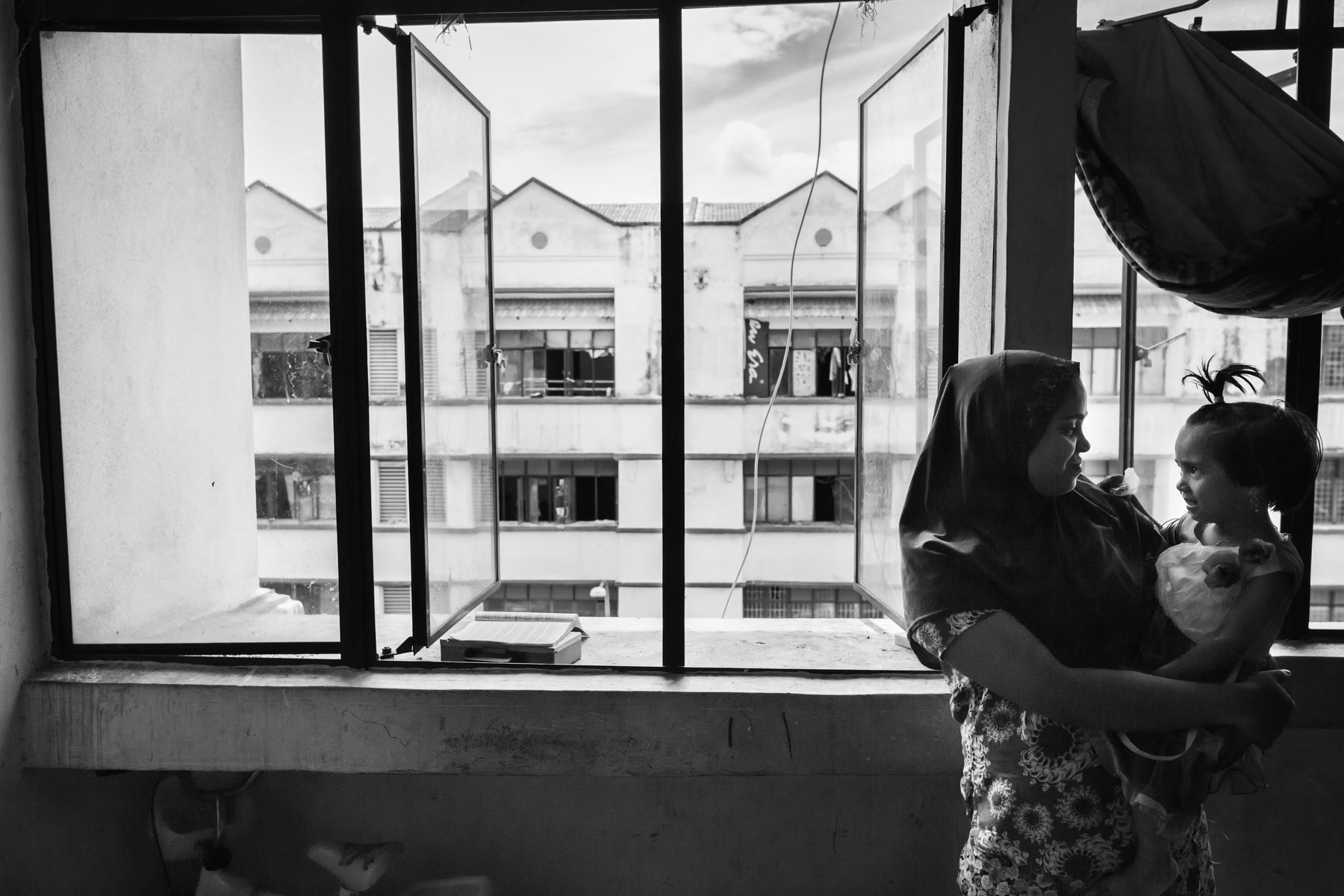
Collective housing for Rohingya refugees working in the wholesale market. Klang, Malaysia, October 2016
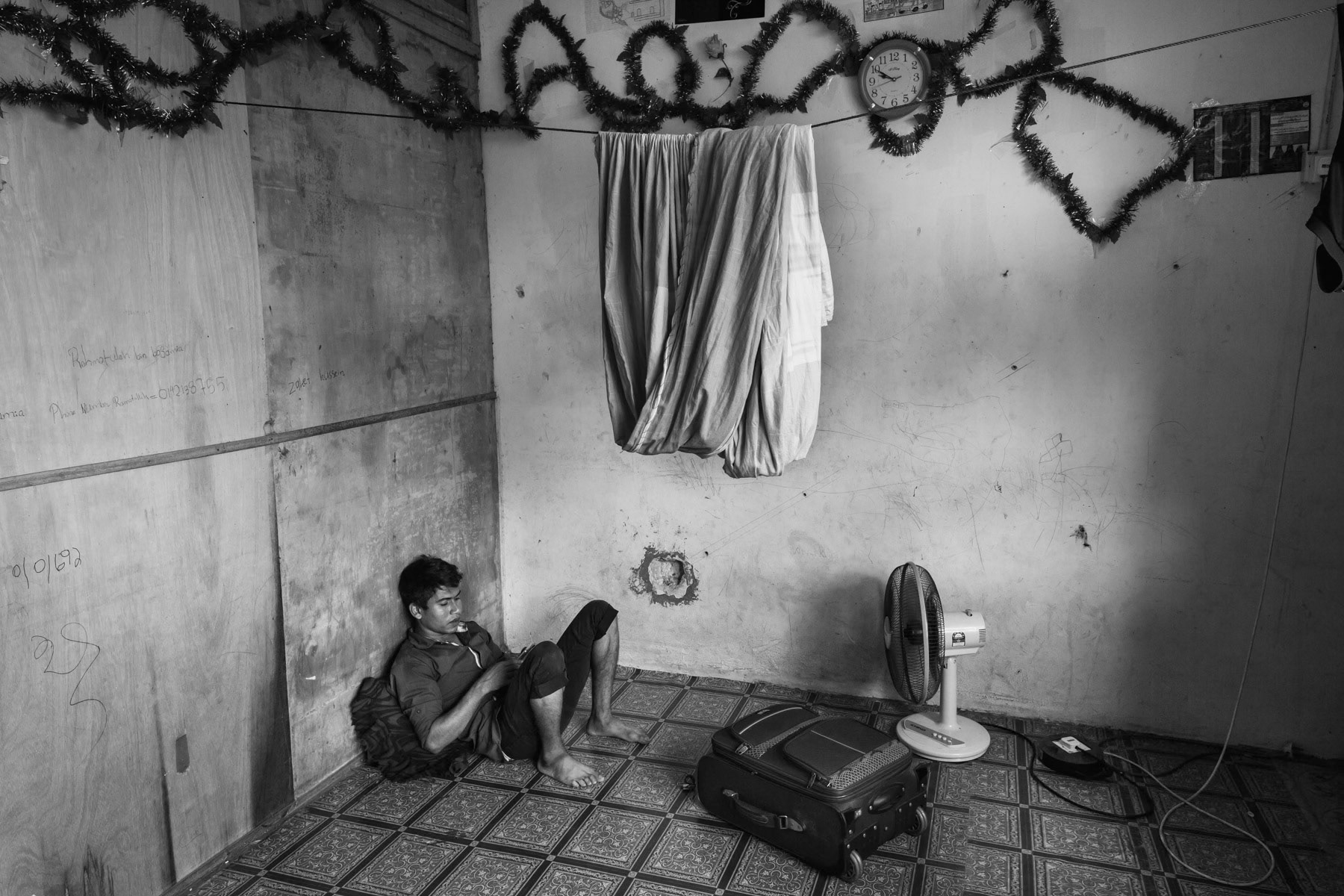
Rohingya man recently arrived in Malaysia where better job opportunities may facilitate family reunion and eventual migration towards a western third country. Wholesale market housing in Klang Valley, Malaysia. June 2016
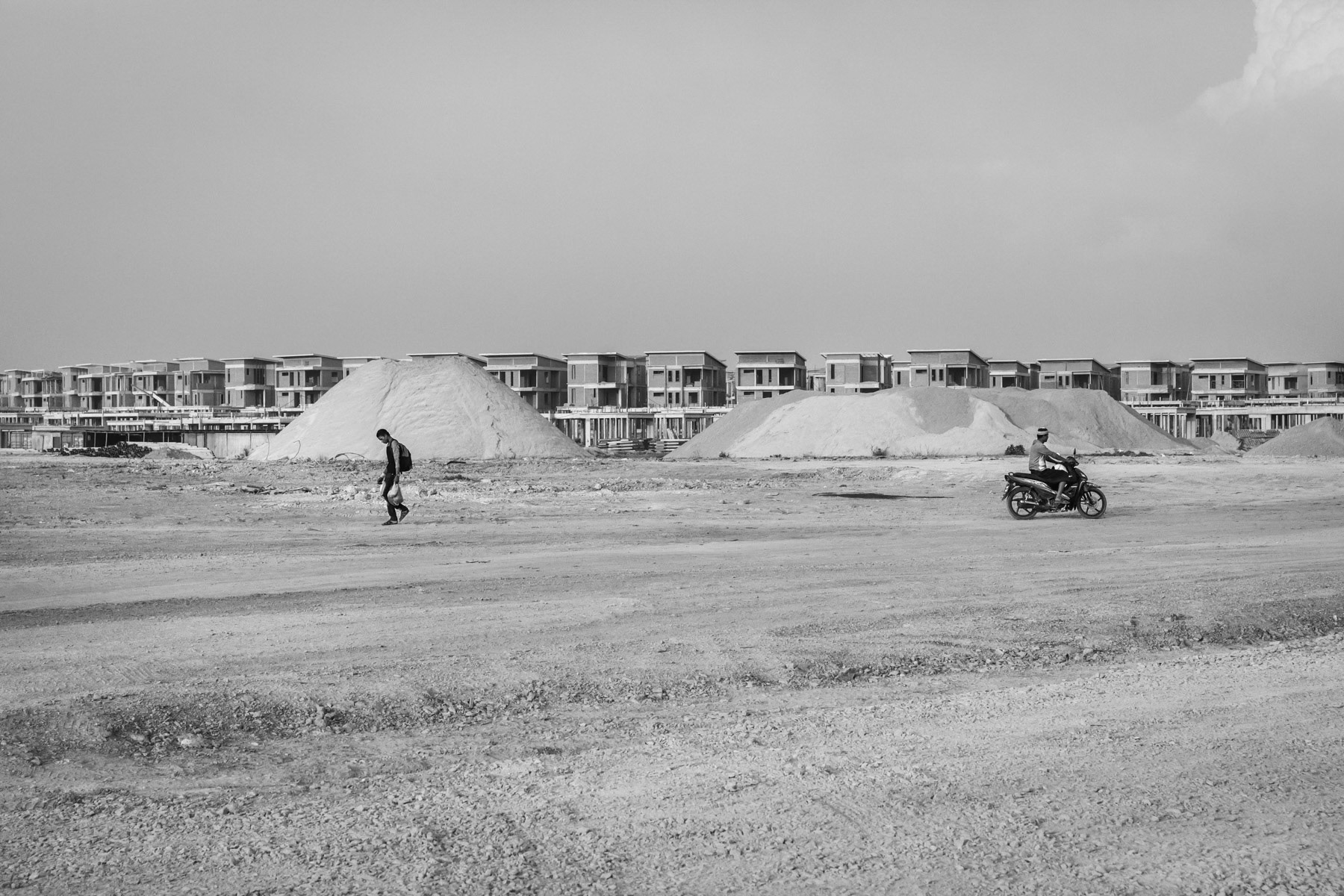
A Chinese owned consortium building one of the largest contruction projects in Northern Malaysia and employing around 1,200 un-registered Rohingya, Desa Ku in Kedai, Malaysia, June 2017
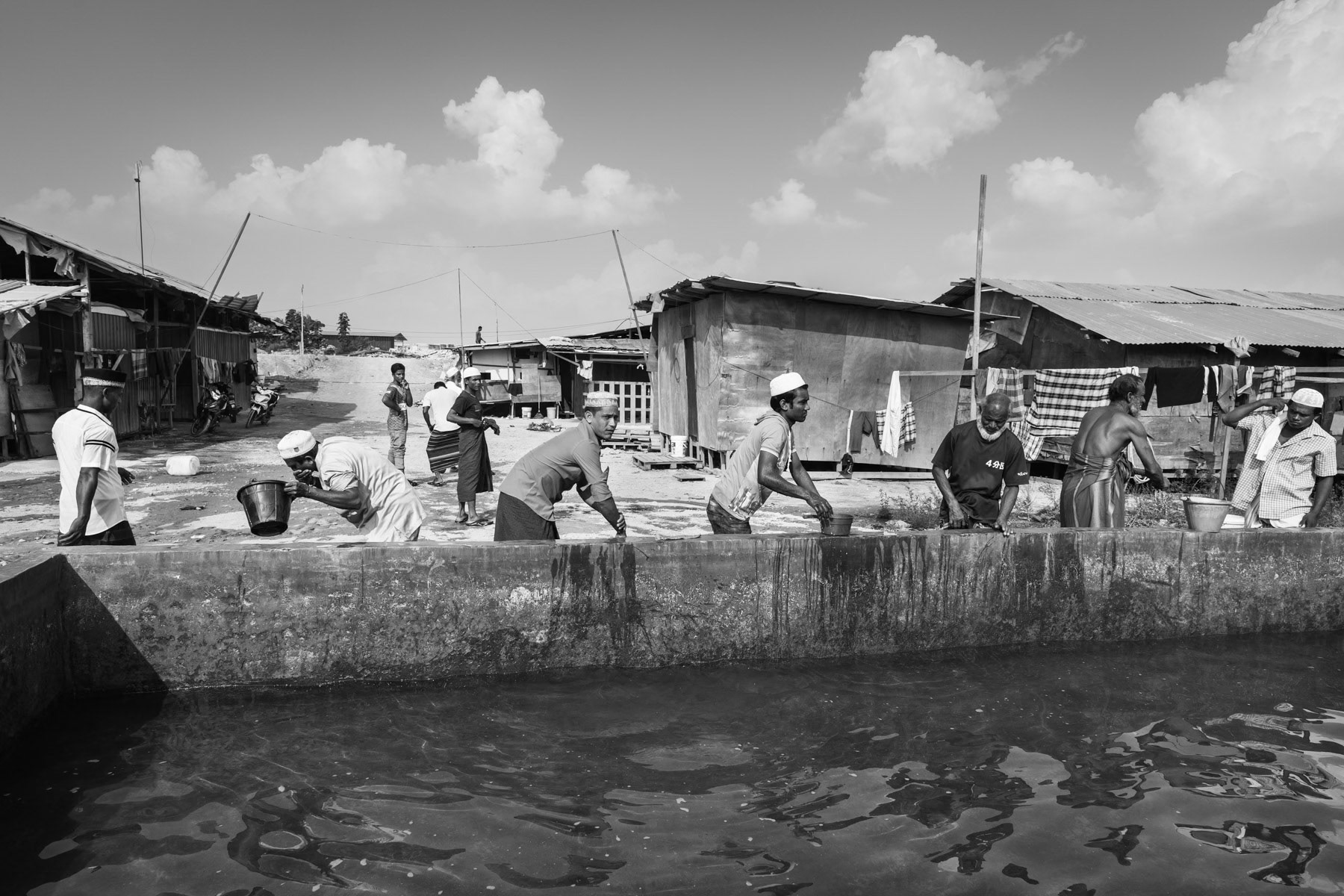
Rohingya construction workers performing ablution before friday prayers. MBI construction site, Desa Ku in Kedai, Malaysia, June 2017
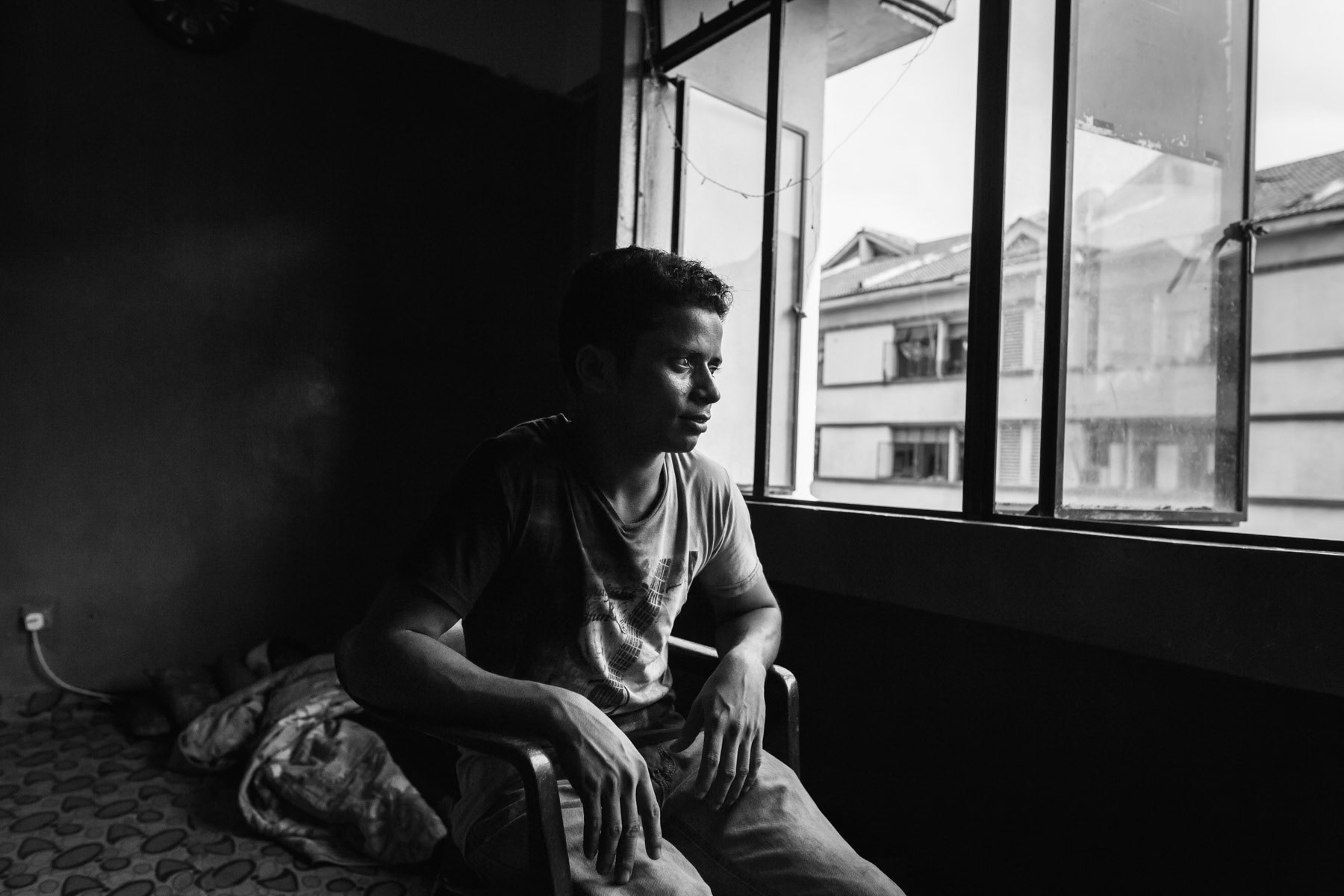
A Rohingya refugee working in the nearby wholesale market, Klang, Malaysia, June 2016
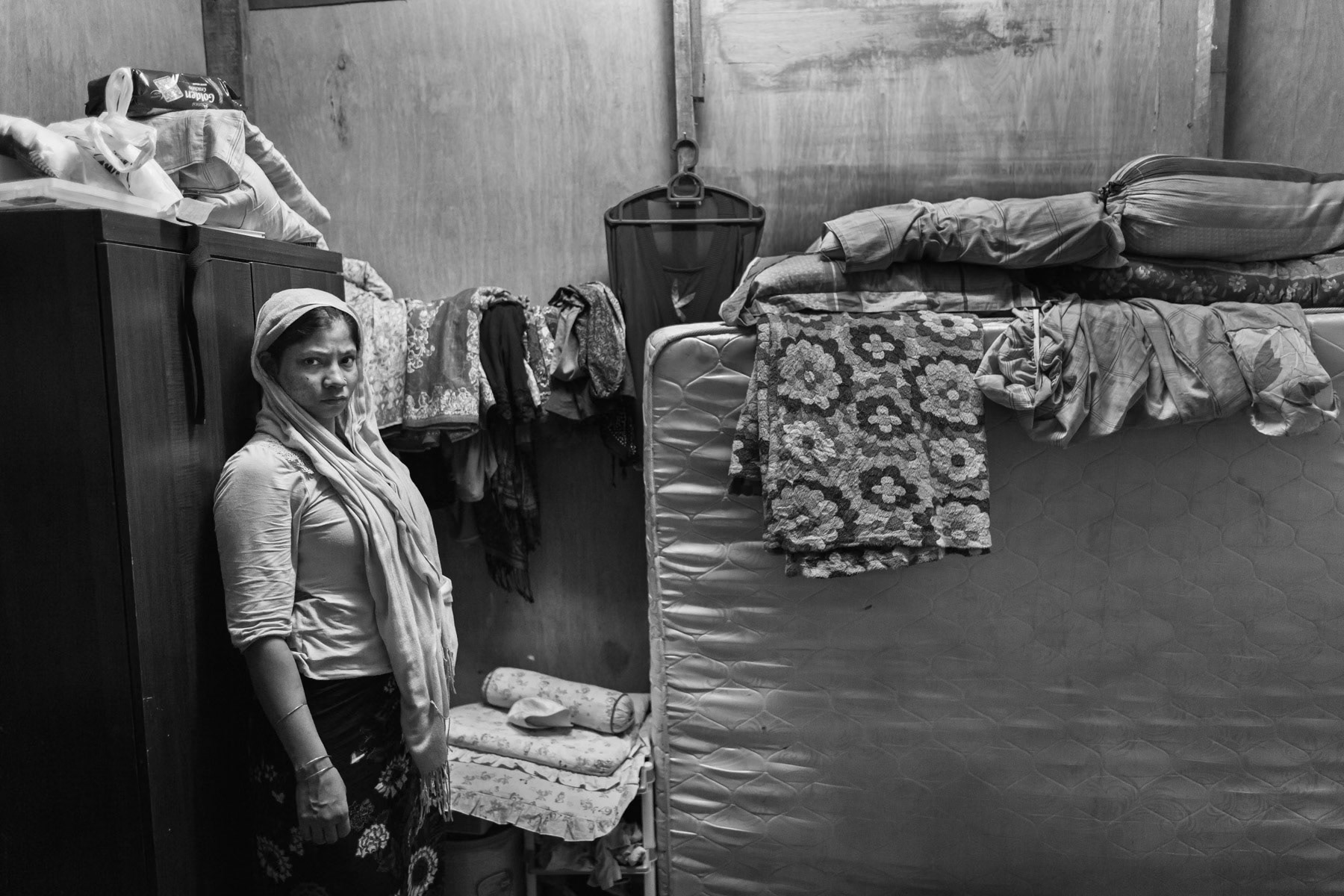
Collective housing for Rohingya refugees working in the wholesale market. Klang Valley, Malaysia, June 2016

A restaurant run by Rohingya refugees in Kuantan, Malaysia, October 2016
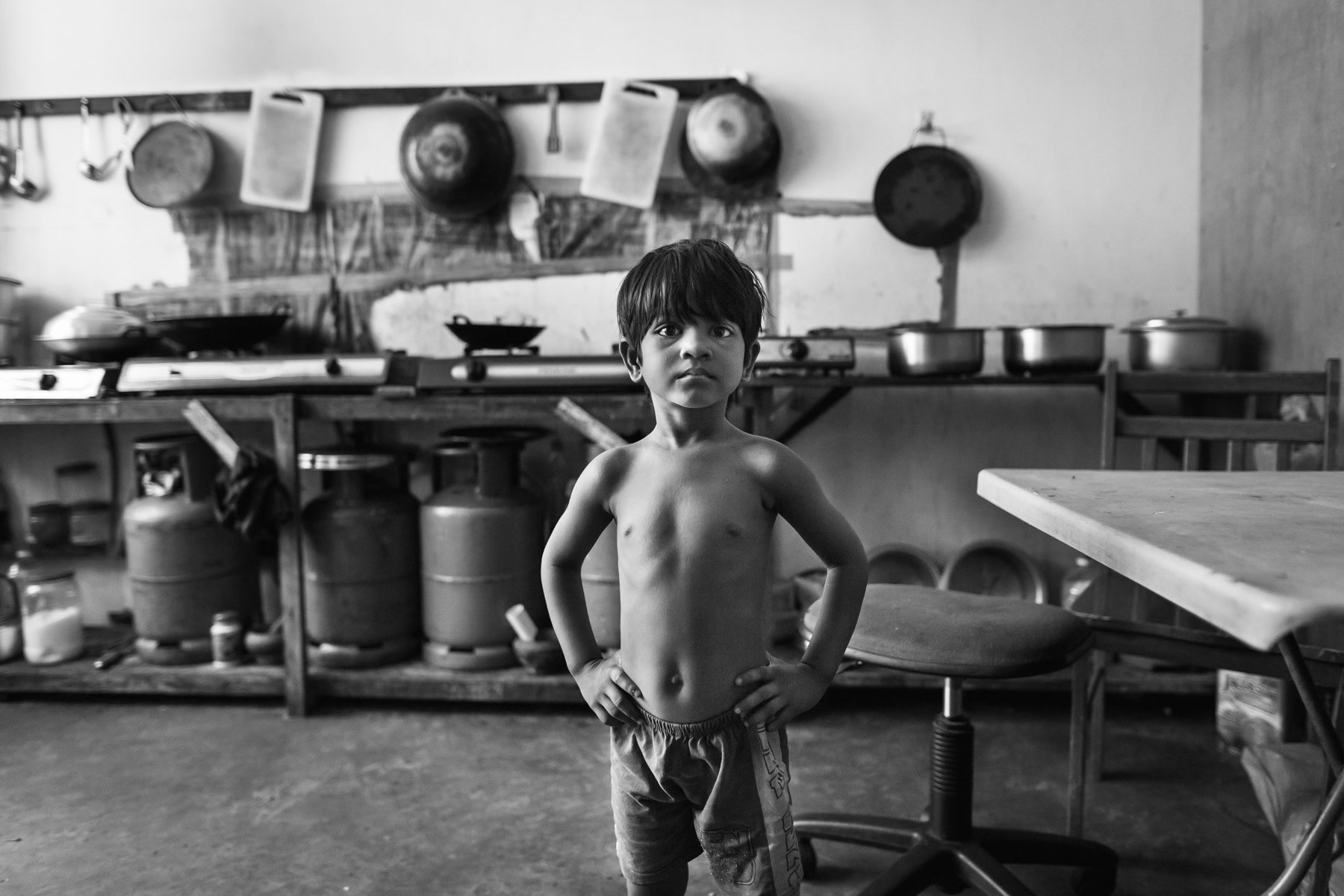
Rohingya boy in the collective kitchen. Klang, Malaysia, June 2016
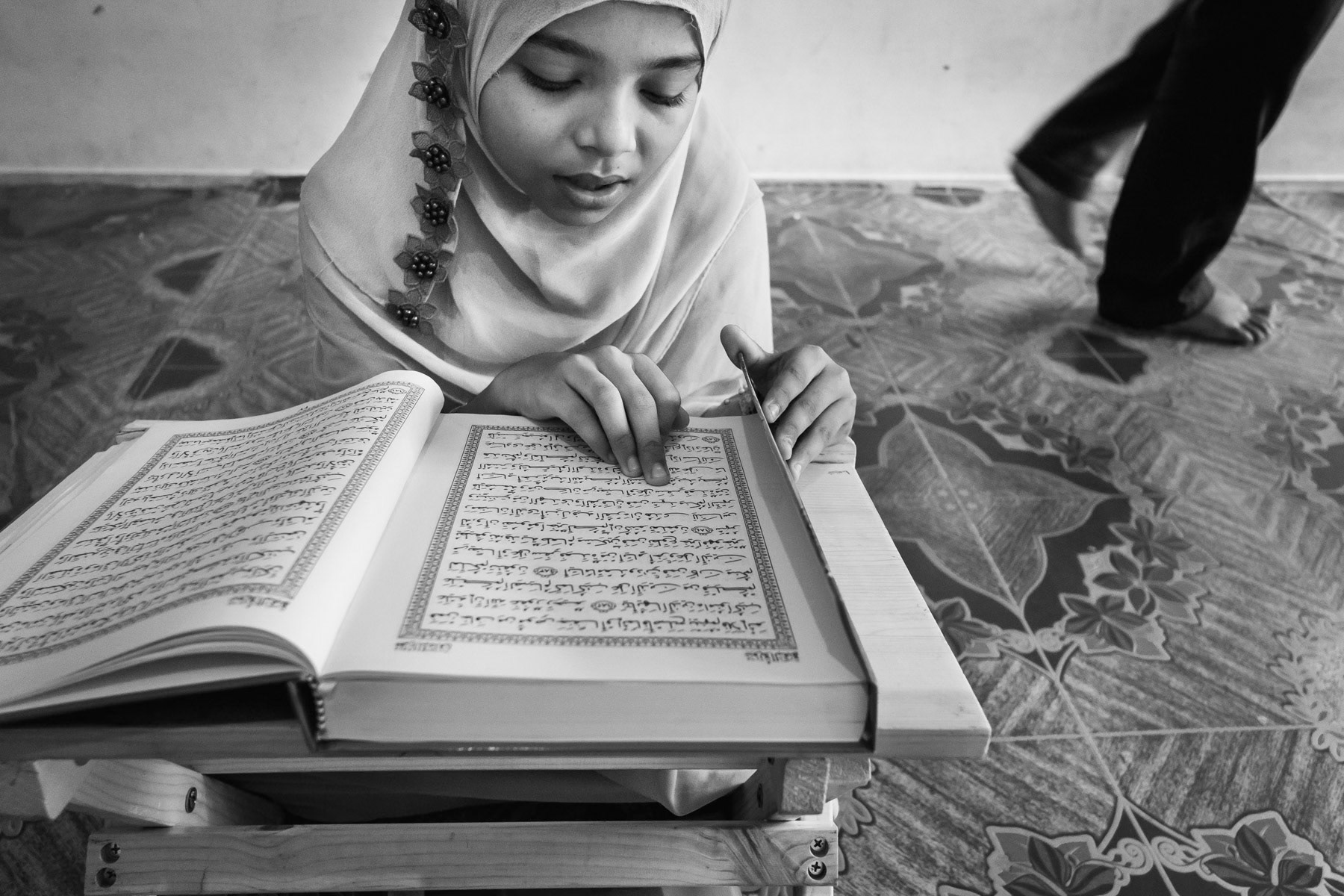
Coranic learning at the medressa. Klang, Malaysia, June 2016
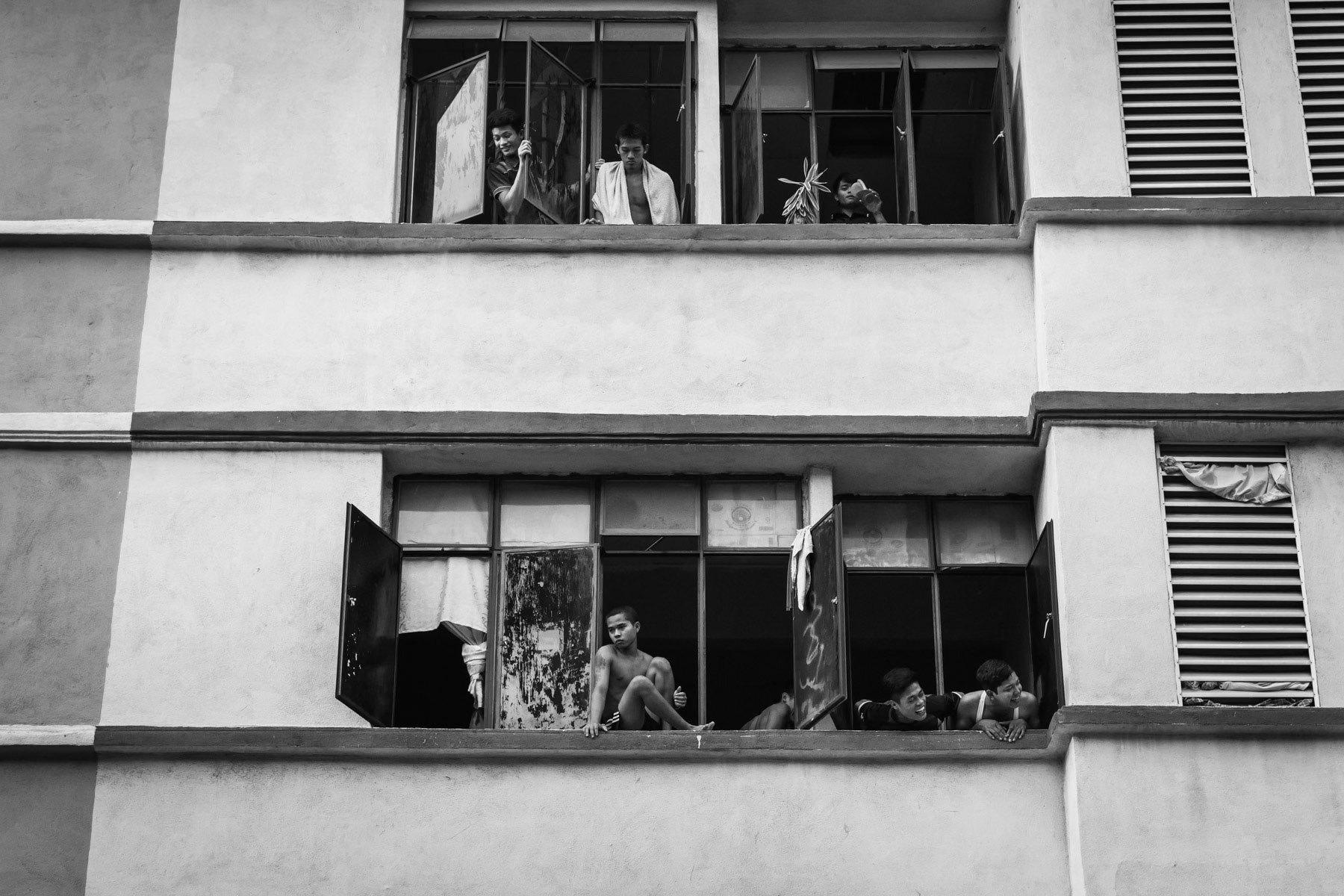
Housing units where mainly Rohingya refugees live, Klang Valley, Malaysia, December 2016
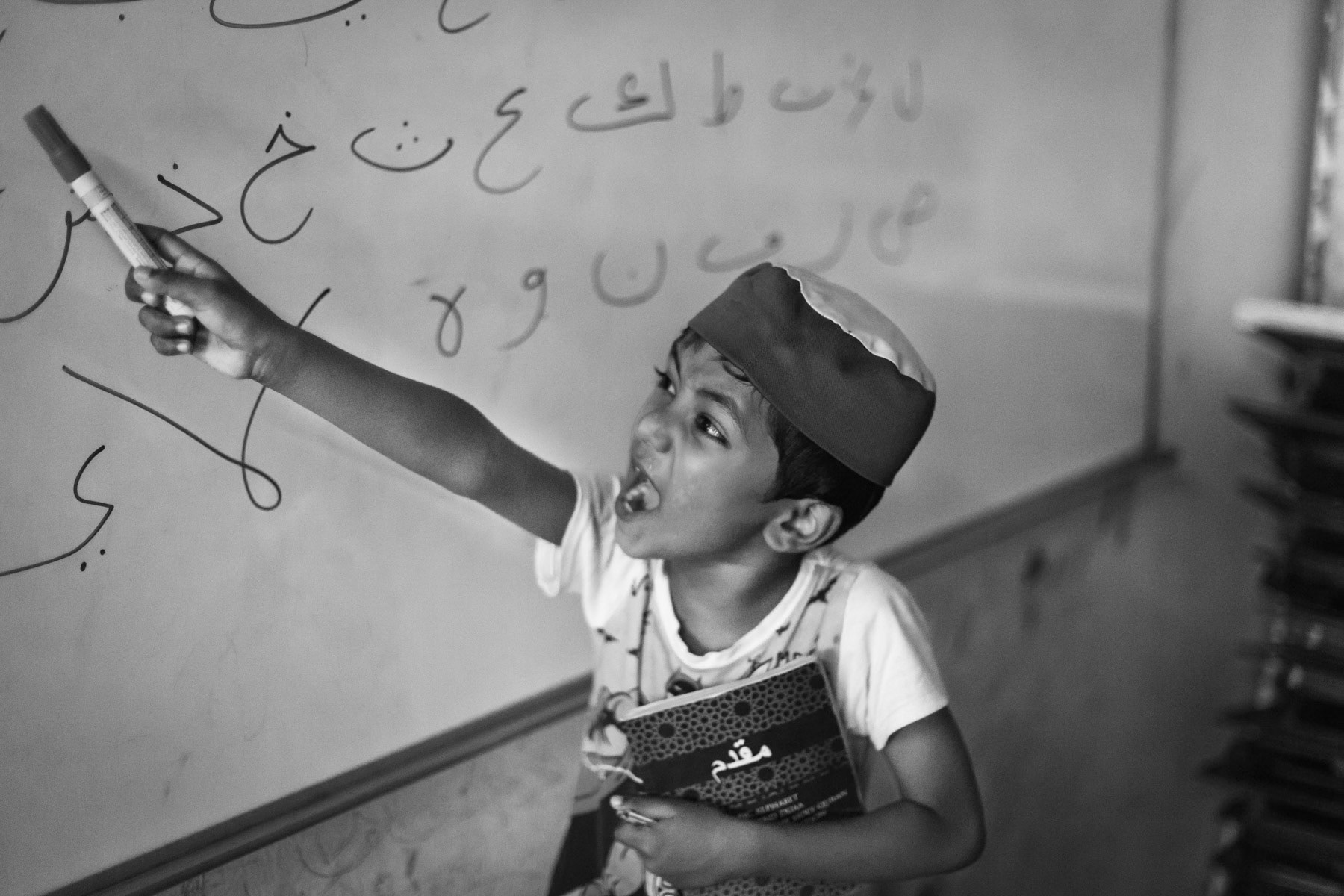
Arabic teaching for Rohingya kids stranded in Malaysia. Klang Valley, November 2016
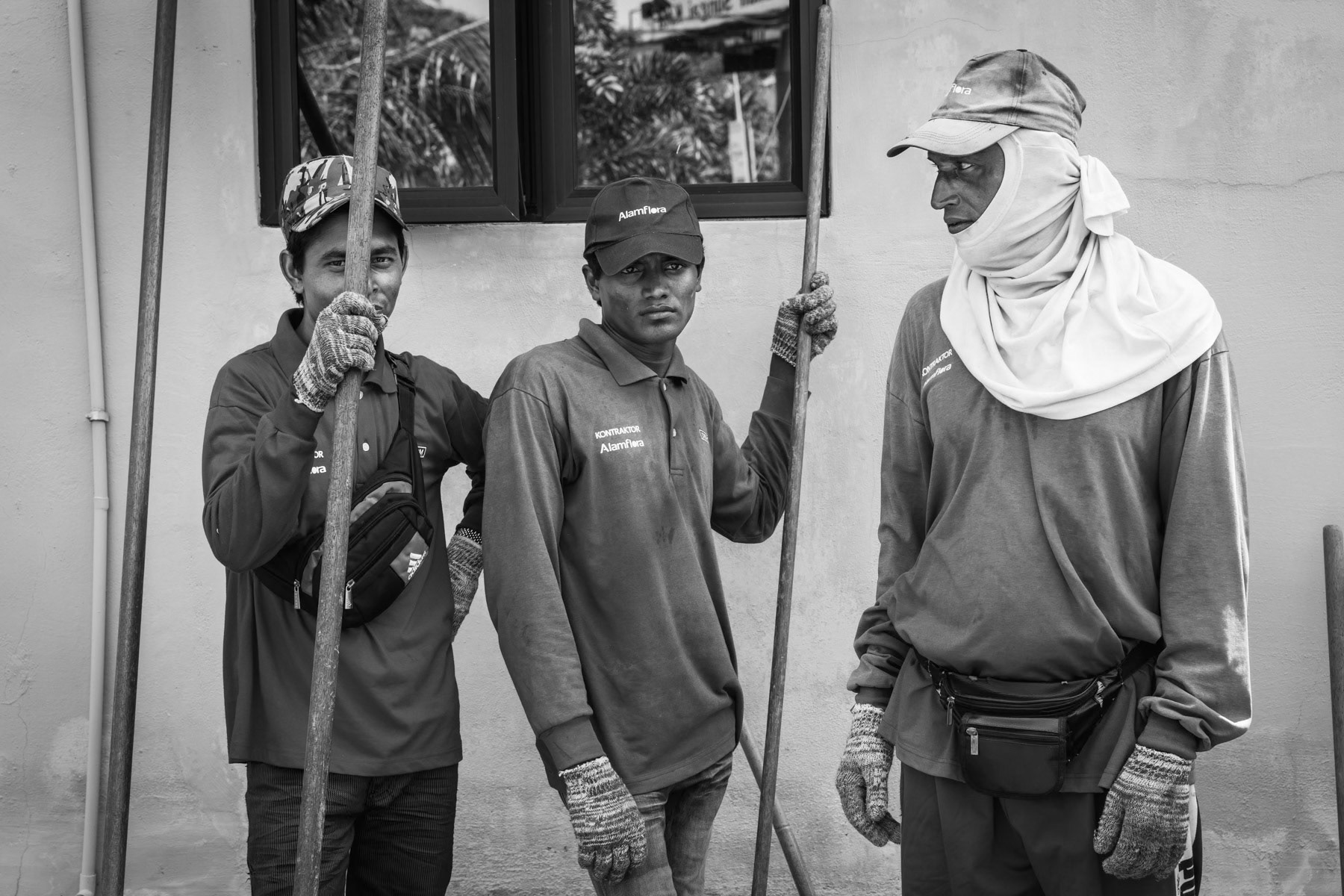
Rohingya daily labour working for a contractor responsible to keep the city drainage and sewage clean. They are paid around 6 usd per day, which is well below the daily wage that would otherwise be paid to somebody having ID documents. Being stateless and having no official ID documents, most Rohingya living in third countries are extremely vulnerable to abuse and underpaid jobs. Kuantan in Pahang, Malaysia, June 2017
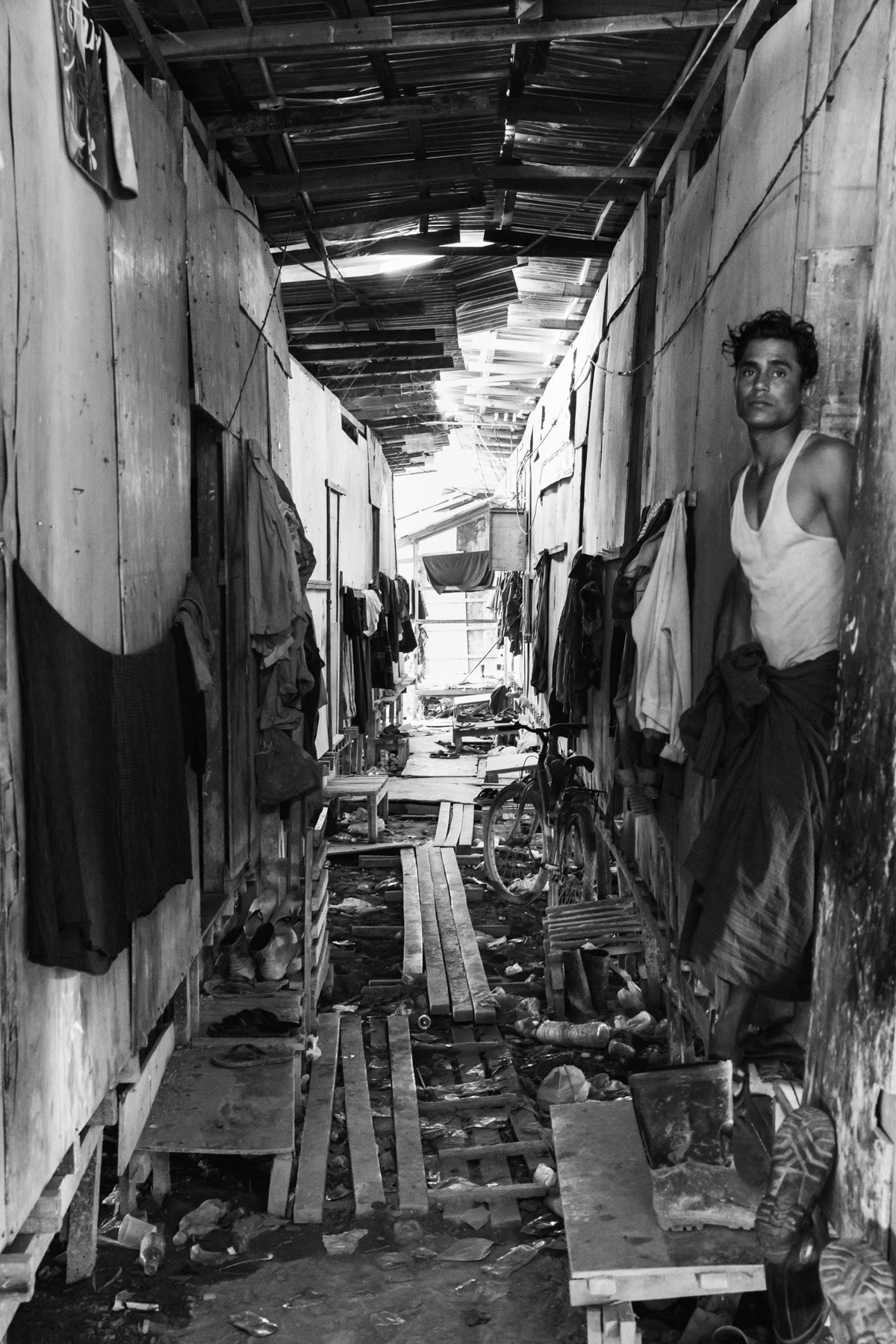
About 1,200 Rohingya work for the past 3 years on what is the largest concentration of Rohingya workers on any construction site in Malaysia. Most are single men that arrived in Malaysia during the past 4 years through human traffickers, less than 10% are registered with UNHCR exposing them to abuse and no protection. Desa Ku in Kedai, Malaysia, June 2017
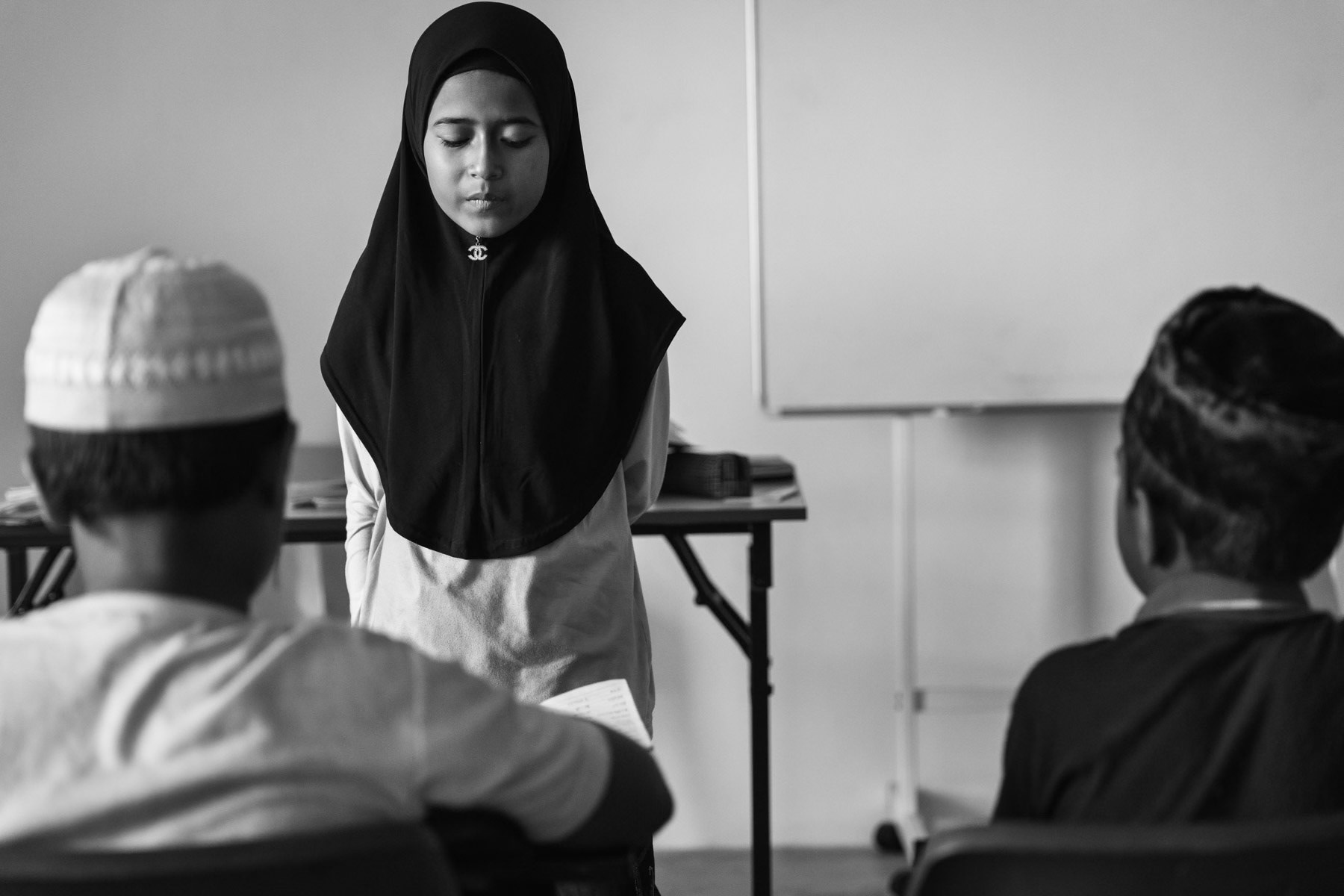
Rohingya children at the coranic school, Kepala Batas near Penang, Malaysia, January 2017
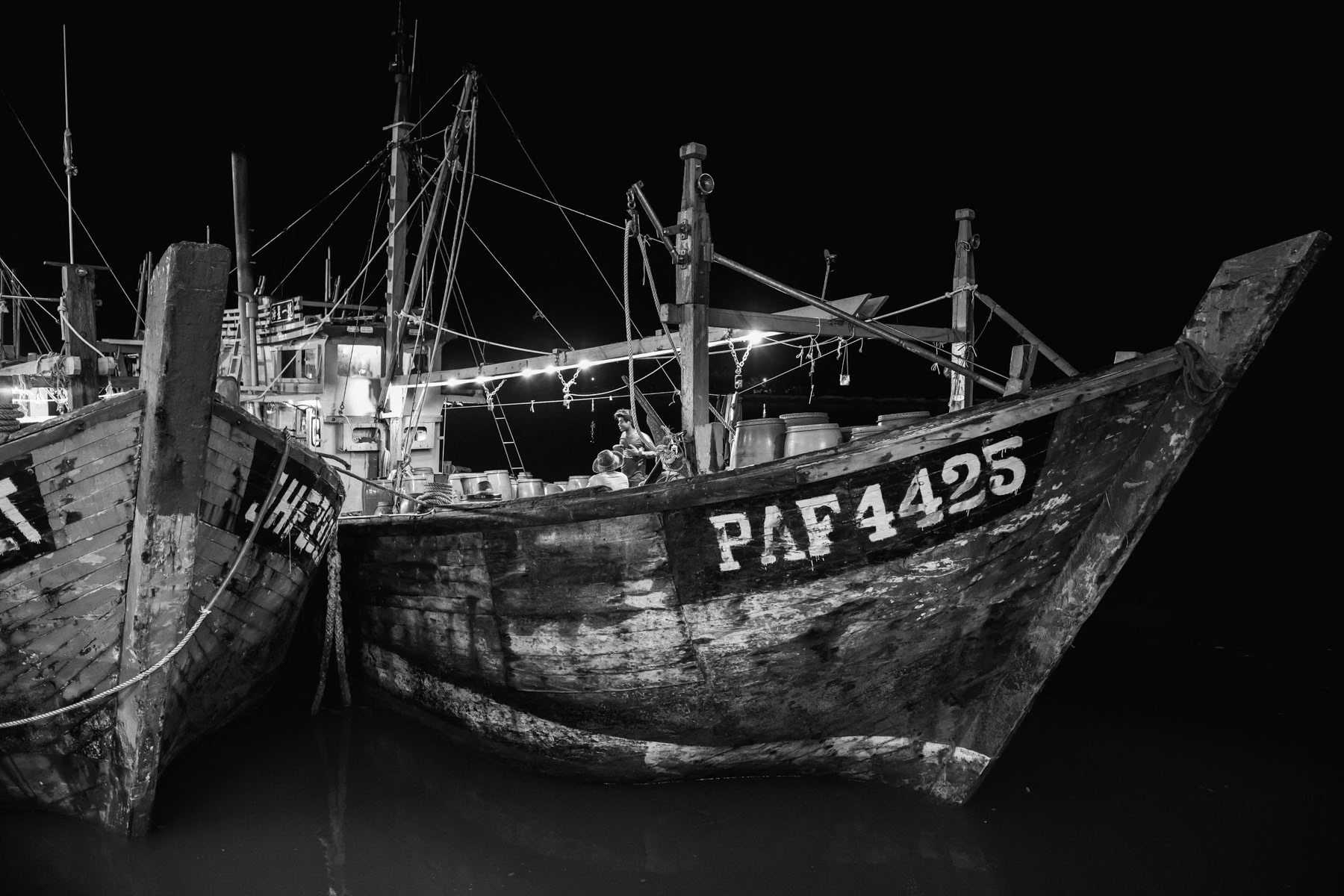
Wholesale market and fishing port where numereous Rohingya refugees work in the early morning hours. Kuantan fishing port, Malaysia, June 2017
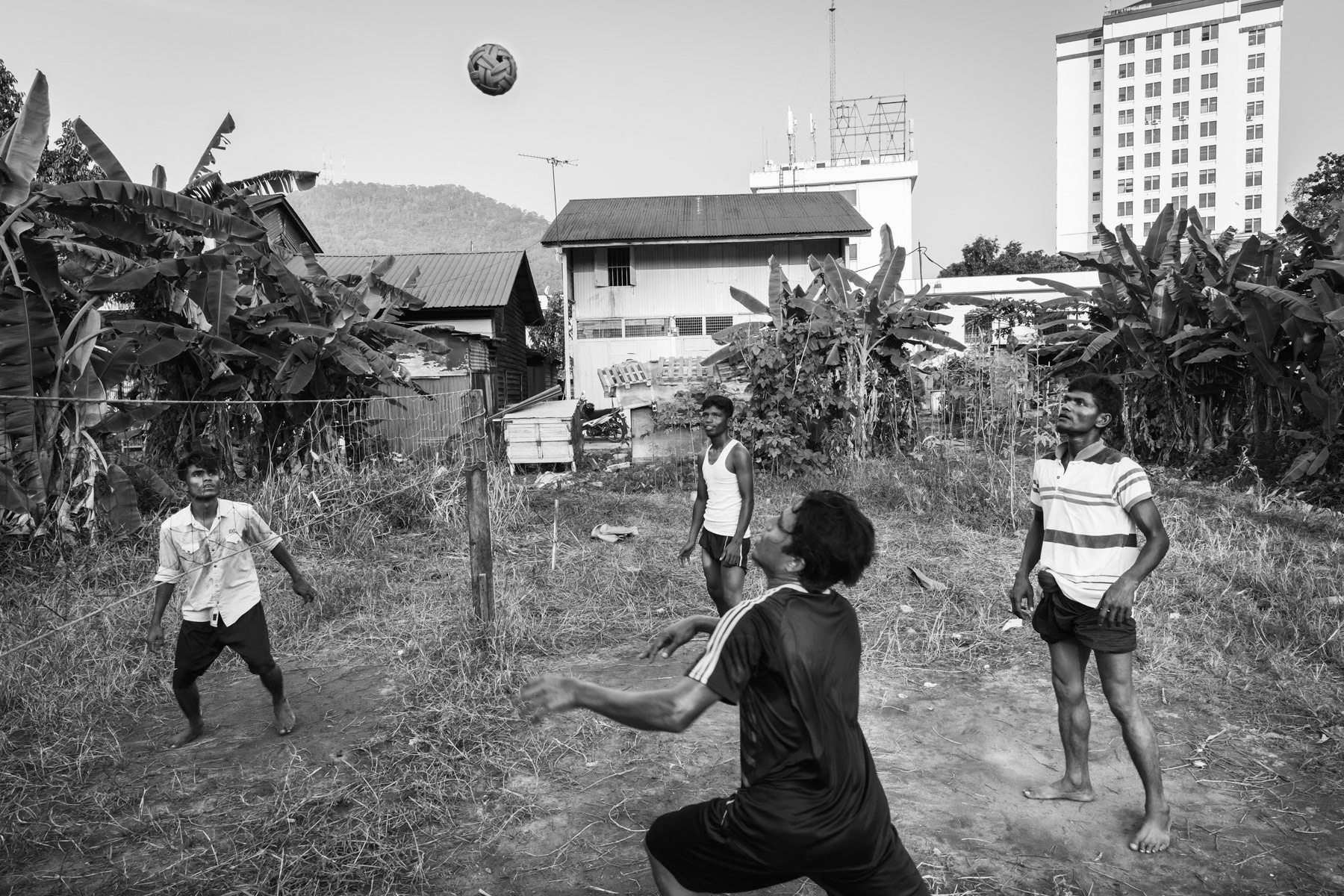
Playing a favourite game among Burmese and Rohingya refugees in Penang, Bukit Mertajam near Butterworth, Malaysia, June 2017
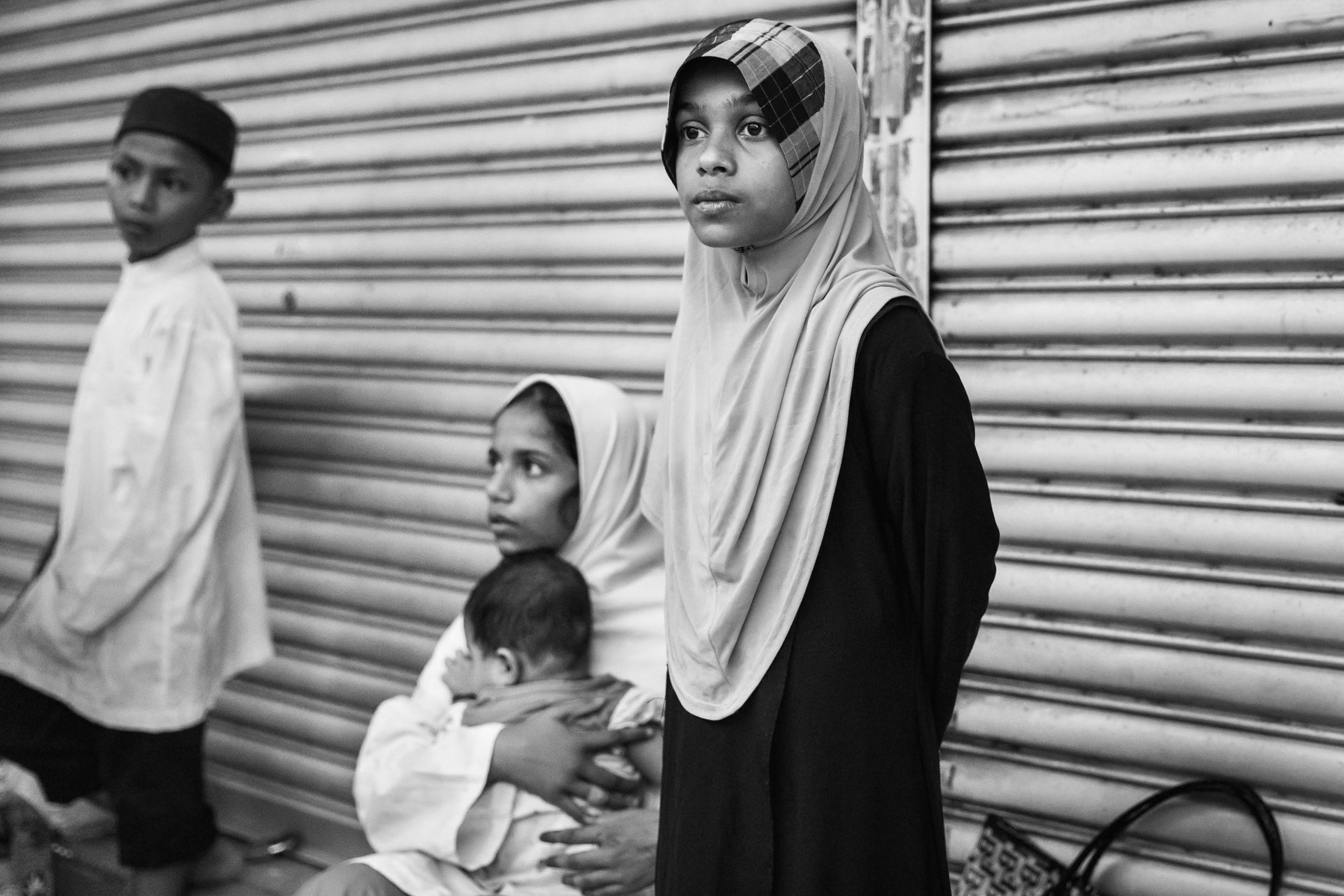
Rohingya families waiting for a food distribution organised by a local charity. Balakong suburb of Kuala Lumpur, Malaysia, June 2017
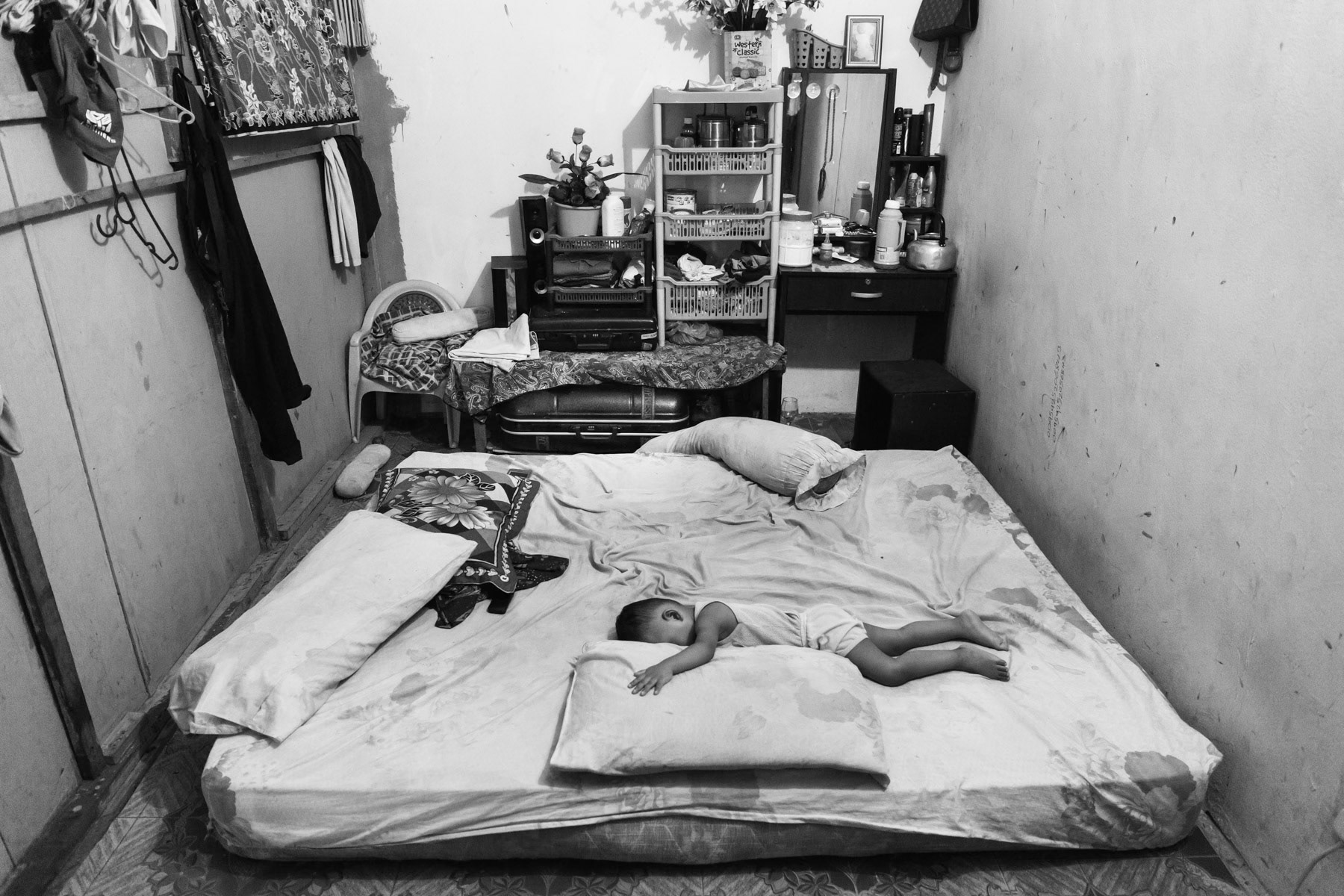
Family room in a building hosting Rohingya refugees working in the nearby wholesale market. Klang, Malaysia, June 2016
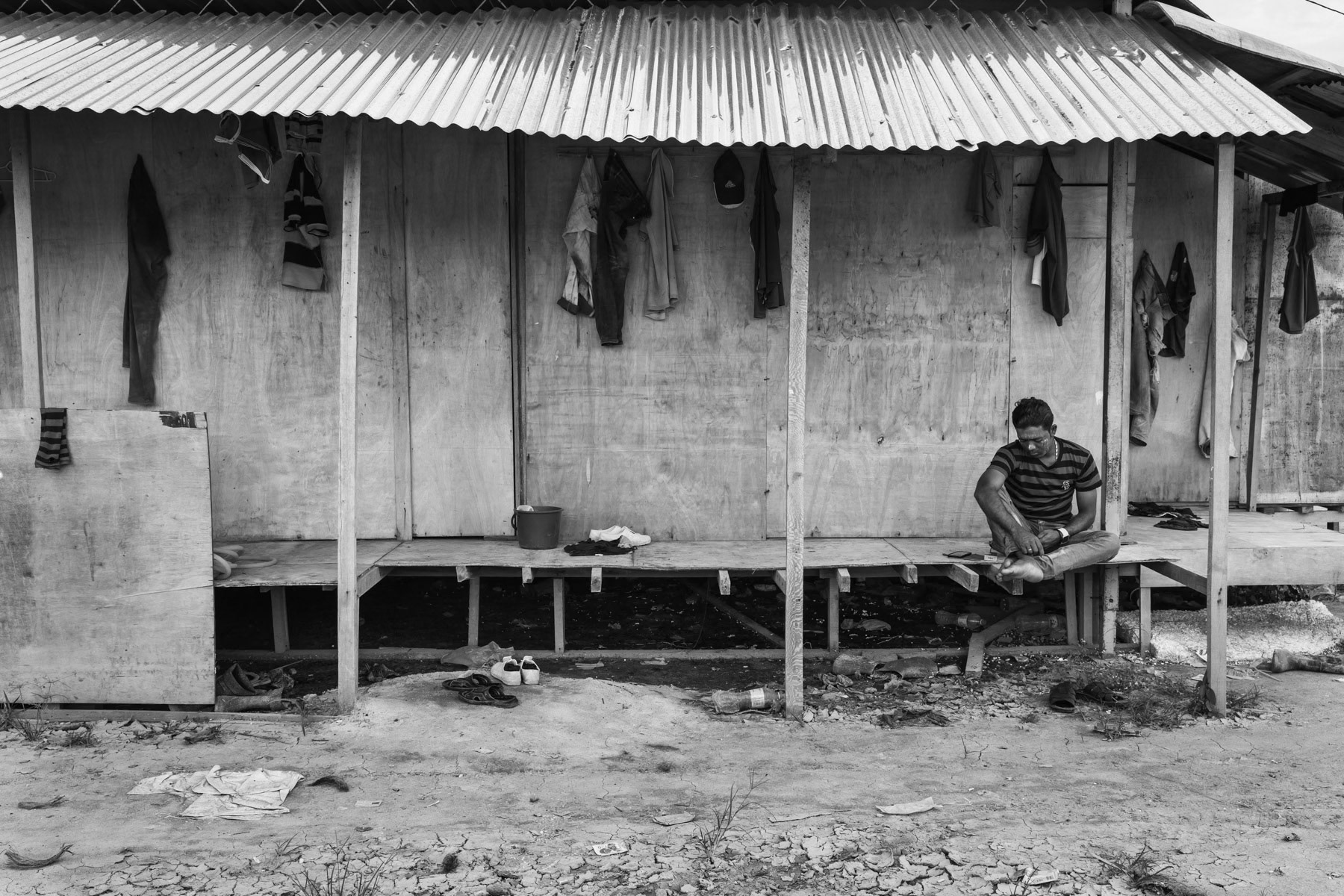
Barracks on an isolated construction site where 40 Rohingya refugees work. Lunas, Kedah, Malaysia, November 2018
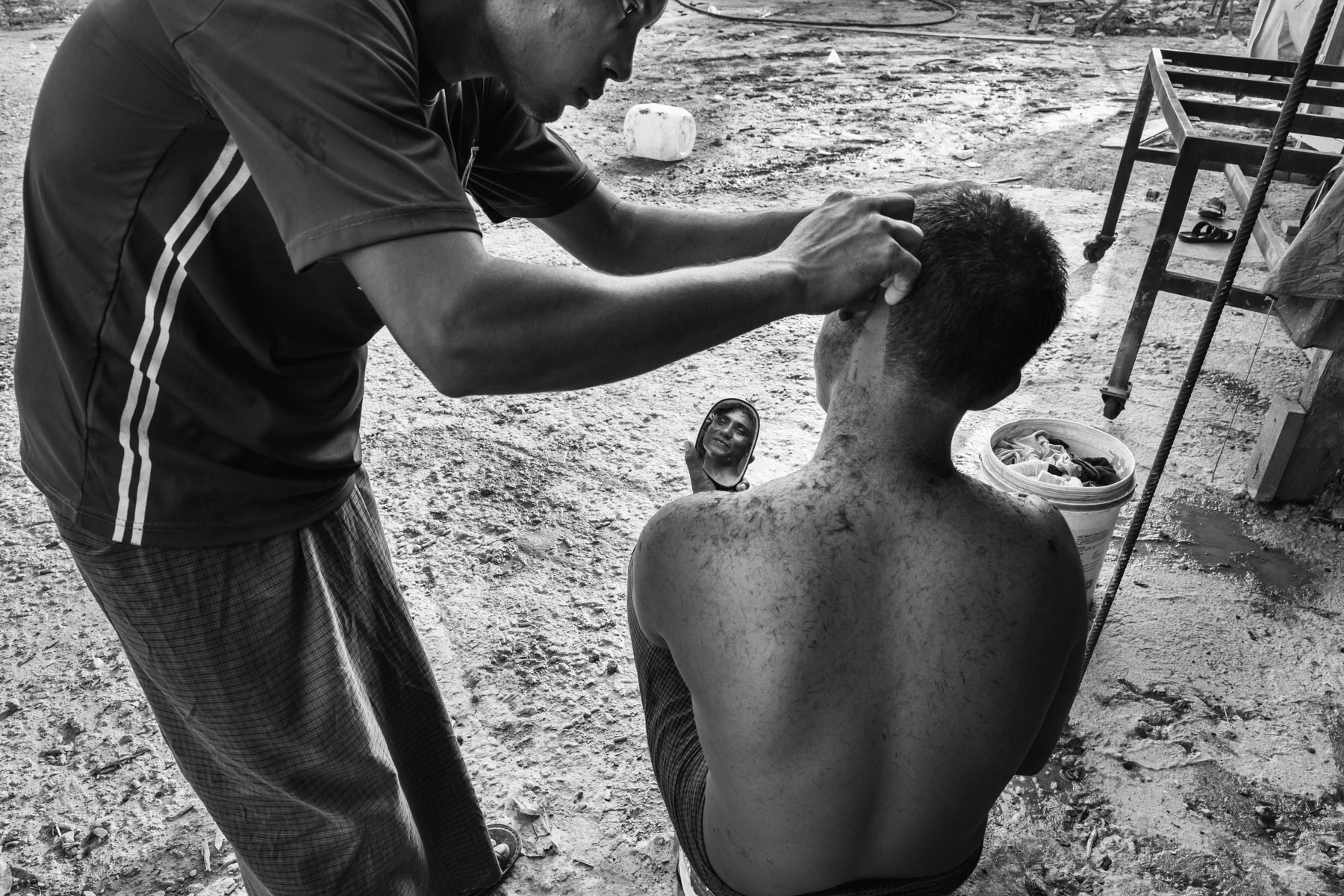
A Rohingya construction worker getting a hair cut during his day off. MBI construction site, one of the largest contruction projects in Northern Malaysia and employing around 1,200 un-registered Rohingya, Desa Ku in Kedai, Malaysia, June 2017
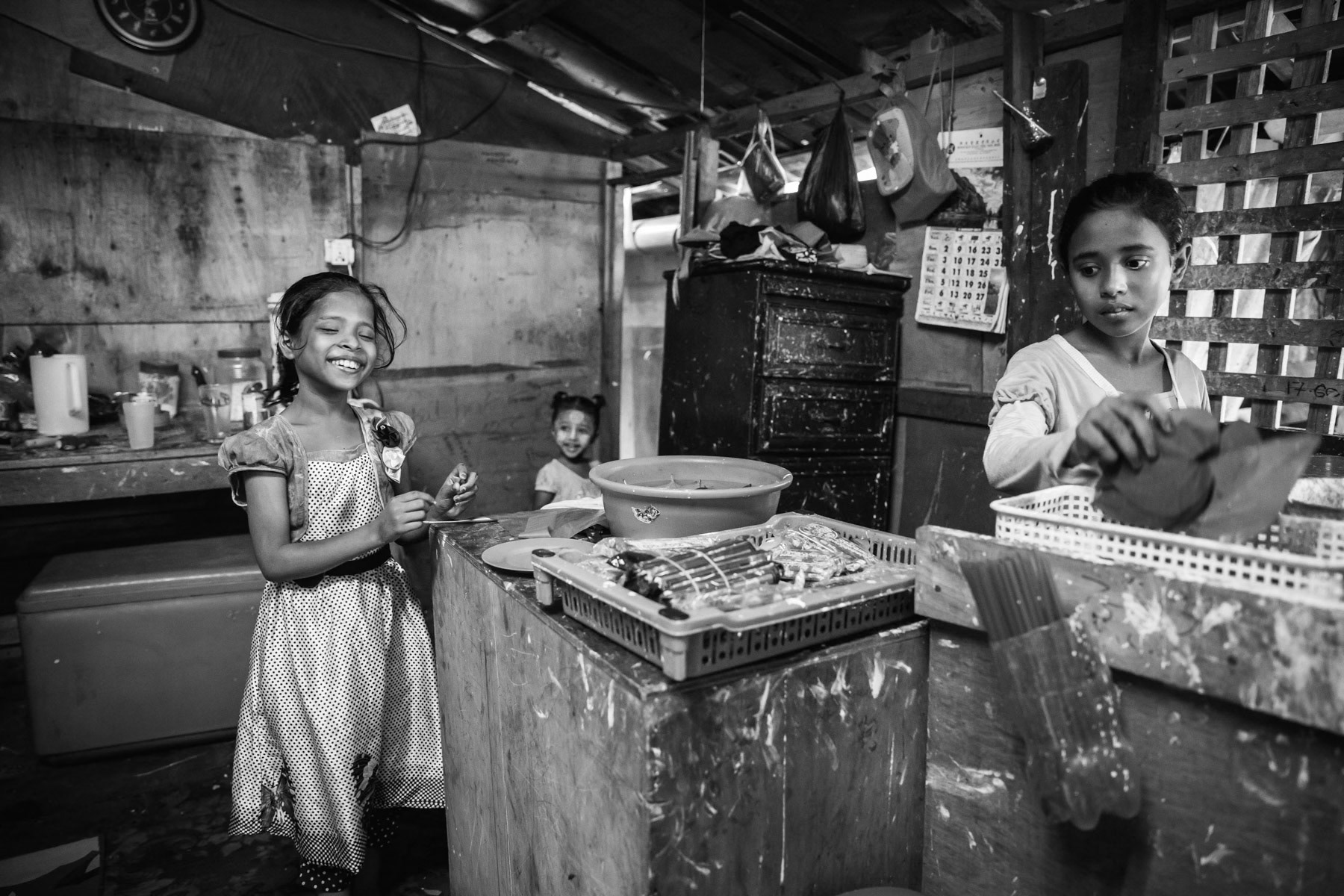
Rohingya family running a selling betel nut in Kepala Batas, Penang, Malaysia, January 2017
